加密飞行 Vol.13 | 社交游戏的链上梦工厂:Social Layer
“因为Crypto,有很多本来不相干的人莫名其妙地就认识了。”
Crypto Flight Vol.13 | Interview with Social Layer: The On-Chain Dream Factory of Social Games
Abstract: Because of crypto, many people who would never have met did.
"Crypto Flight" is a series of interviews by Uncommons, focusing on pioneers active in the Ethereum and crypto world. It documents the reality of the crypto space and produces diverse perspectives, using conversation and everyday language as methods to distill distant and far-off truths. Inspired by Antoine de Saint-Exupéry's Vol de Nuit (Night Flight), it symbolizes the challenge and exploratory spirit of cypherpunks and crypto citizens as they venture to the ends of the world.
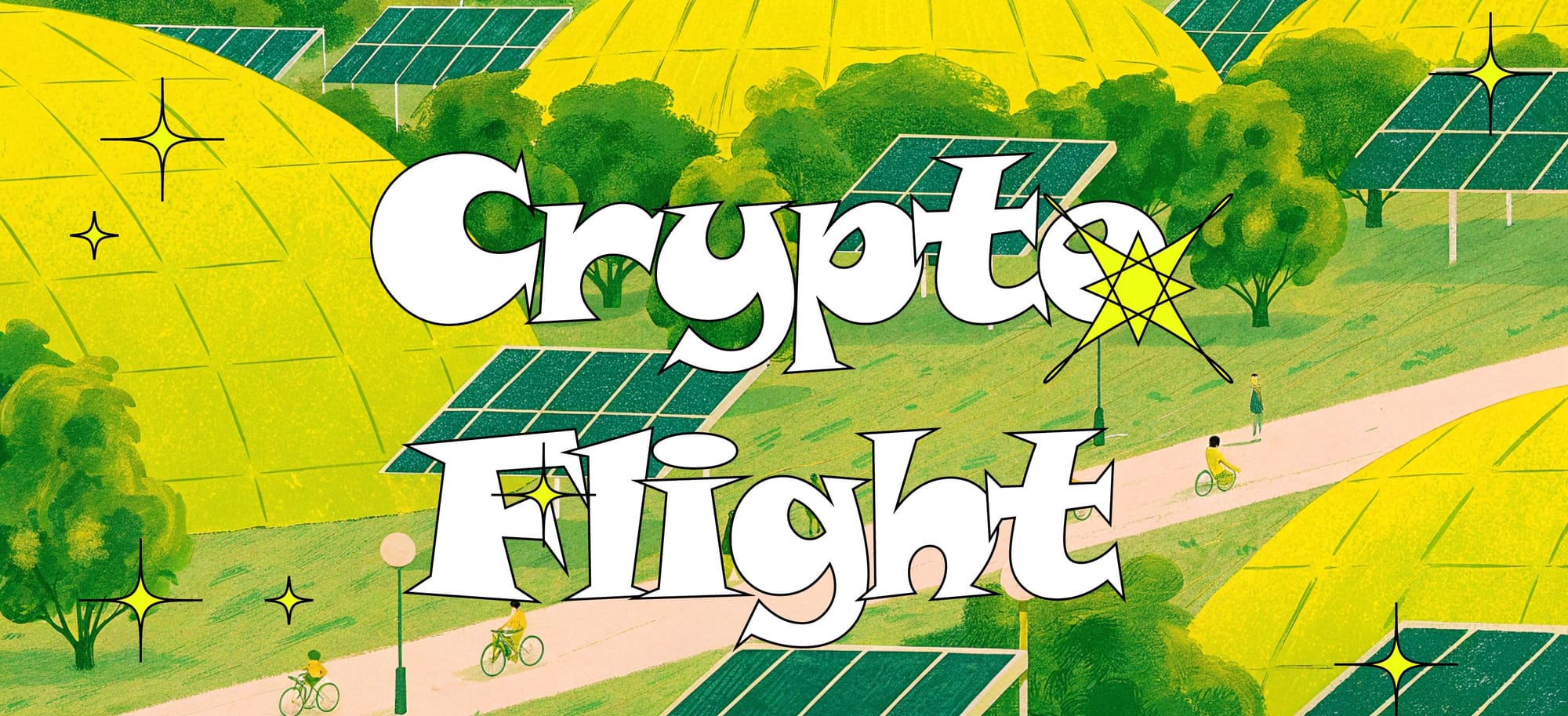
在加密之前,首先是
Before the Crypto, There Was
早期的 Crypto 纯爱社会
The Early Days of Crypto Pure-Love Society
把社区作为方法?
Community as Method?
叙事、商业和真实科幻
Narrative, Commerce, and Real Sci-Fi
Social Layer 究竟做了什么
What Exactly Has Social Layer Been Doing
RxC 的社区货币实验
RxC's Community Currency Experiment
围绕 Pop-up city 的访谈
Interviews Around the Pop-up City
和我们一起老去的社区
Communities That Grow Old With Us
未来何日可期,过往随风飘去
When Will the Future Arrive, While the Past Drifts Away
加密飞行员落脚何处
Where Do the Crypto Pilots Finally Land
2024 年九月底,我从 Eggy 手中拿到了这批稿件。同年十月,我们在 Uncommons 成立了这个名叫“加密飞行”的专栏。最初对加密飞行的设想,即来自于在这一世界所见的人们的生活样态:奔逐的,自由的,浮想于链上王国的魔法使,骑着扫把飞行于加密社会和真实世界之间的赛博边疆,在地平线上追逐日与夜的分界。哪一边是更好的,更真实的?这条看不见的电子边疆也像地球的晨昏交点一样不断飞移吗?
我们携带着肉身进入这个光怪陆离的世界,一个个出现在星球上的 Pop-up City 就像轻盈的水泡,或簇拥或神秘地降落在那些远离都市或人烟的小镇与街区。在爱丝梅拉达,在曼谷和清迈,在布宜诺斯艾利斯,在火星,在世界各地,我们走进庞大的会展巨构和幽深的乡镇小径,走出 Breakout room,进入魔方格子。我们乘坐高速行驶的摩托闯过车流,拍下夹杂着 “Crypto is useless” 字样的尾气,同时还有音乐——最好的爵士酒吧,即将搬到一间加密面包坊隔壁。颓唐的法币躺倒在标注着接受 USDT 支付的收银盒里,在悬挂着风向标的彩色房子顶楼,我们讨论着那被认为包含了世界上一切美好和可能的、行之有效的技术及一切——同时也可能潜伏着已知和未知的邪恶。
假如明天 Crypto 消失,另一种加密仍将显现;对隐私和透明的争论将伴随着人类社会而延续,去中心的自组织无需理论,仍旧真实鲜活。为了拆解巨构,我们创造叙事;为了让叙事回到人间,我们到处飞行。这将是另一本献给这个不可多得时代的《格列佛游记》,或者深埋地下的无名小书,与废弃的公链和 AI Agent 一起,等待在下一个时代重新出土。
In late September 2024, I received this collection of writings from Eggy. The following month, we launched a column called Crypto Flight at Uncommons. The initial vision for Crypto Flight arose from the lived realities of those we encountered in this world: restless, free, like mages conjuring dreams in on-chain kingdoms, flying between crypto societies and the tangible world on metaphorical broomsticks, chasing the elusive boundary between day and night on the horizon. Which side is better, more real? Does this invisible digital frontier shift like Earth's moving line between dawn and dusk?
We enter this phantasmagorical world in our physical bodies. The Pop-up Cities that dot the globe are like glimmering bubbles—gathered in clusters or descending mysteriously into towns and neighborhoods far from urban sprawl. In Esmeralda, in Bangkok and Chiang Mai, in Buenos Aires, on Mars, and across the planet, we weave through massive conference megastructures and quiet rural alleys. We exit breakout rooms into Rubik's cube-like networks. Riding fast motorbikes through traffic, we capture exhaust fumes emblazoned with "Crypto is useless", all to a backdrop of music—the city's best jazz bar is about to open next to a crypto-themed bakery. The weary fiat notes lie slumped in tip jars labeled "USDT accepted". Atop colorful houses fluttering weather vanes, we discuss those technologies and ideas said to contain all that is good and possible in the world—and with them, the potential for known and unknown evils.
If crypto vanished tomorrow, another kind of encryption would emerge. The tension between privacy and transparency will persist as long as human society exists. Decentralized self-organization doesn't need theory—it simply lives. To dismantle the megastructures, we create narrative. To bring narrative back to the human realm, we take flight. This may become another Gulliver's Travels for a rare and fleeting era—or a nameless book buried deep in the earth, lying in wait with discarded blockchains and AI agents, ready to be unearthed in the next age.
Social Layer × Uncommons
Reporter: 935&Shiyu
Translator&Edit: Shiyu
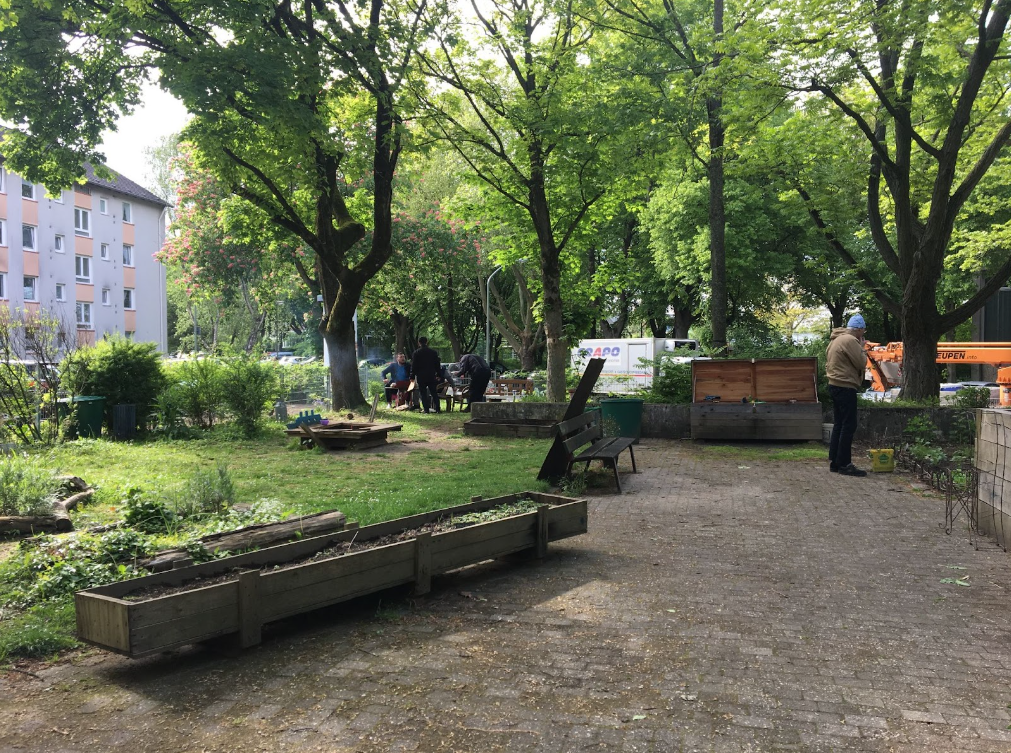
About
Jiang
Contributor of Social Layer
Eggy
Ph.D Candidate in Design for Social Innovation
Contributer of Social Layer
935
Mind in the 20th century
body in the 21st century
spirit in the 22nd century crypto movement and philosophy of technology researcher
Shiyu
Member of Uncommons
在加密之前,首先是
Before the Crypto, There Was
935:你们是出于什么契机进入社群,或是 Crypto 这个圈子的?大家原本从事什么工作?是因为所学专业还是某些特殊经历,让你们开始了这段旅程?
What prompted you to enter this community or the broader crypto space? What kind of work were you doing before? Was it something about your academic background or a particular experience that led you on this path?
Eggy:我本硕都是景观设计专业,研究方向偏社区花园,所以对社区概念有接触。去德国之后做实地调研,发现那边的社区花园自主性很强。当时还接触到 Transition Town(转型城镇)运动,他们用社群网络方式,希望解决气候变化问题和各种城市病。这个从英国发起的组织在很多城市都有点位,我在德国埃森市(Essen)调研时,发现当地社区花园群体很多来自这个网络。当时我的研究还比较初步,主要是景观设计相关的空间规划,比如讨论怎么申请土地、规划种植这些基础问题。另一部分专注空间本身。后来觉得这些实践里面的社区这个概念很有意思,就决定读博士了。
读博士时我是设计学,当时接触到社会创新这个概念,是 Ezio Manzini《Design,When Everybody Designs》这本书里讲的,对当时的我,还有很多做社区营造的朋友都非常有启发。加上同济的设计创意学院本身也蛮好的,就继续在这里读博。
I did both my undergraduate and master's degrees in landscape design, with a research focus on community gardens—so I had some exposure to the concept of community. While doing fieldwork in Germany, I discovered that their community gardens were very autonomous. I also came across the Transition Town movement, which uses community networks to tackle climate change and urban problems. It started in the UK but had nodes in many cities. In Essen, Germany, I found that many community garden groups were part of that network. At that time, my research was still in its early stages, mostly focused on spatial planning in landscape design—how to apply for land, how to plan planting, etc. Another part of my work focused on the space itself. Eventually, I found the idea of community so interesting that I decided to pursue a PhD.
My doctoral studies were in design. That's when I encountered the concept of social innovation, particularly through Ezio Manzini's book Design, When Everybody Designs. It was really inspiring for me and many of my friends involved in community-building. Tongji University's College of Design and Innovation was also a great environment, so I continued my PhD there.
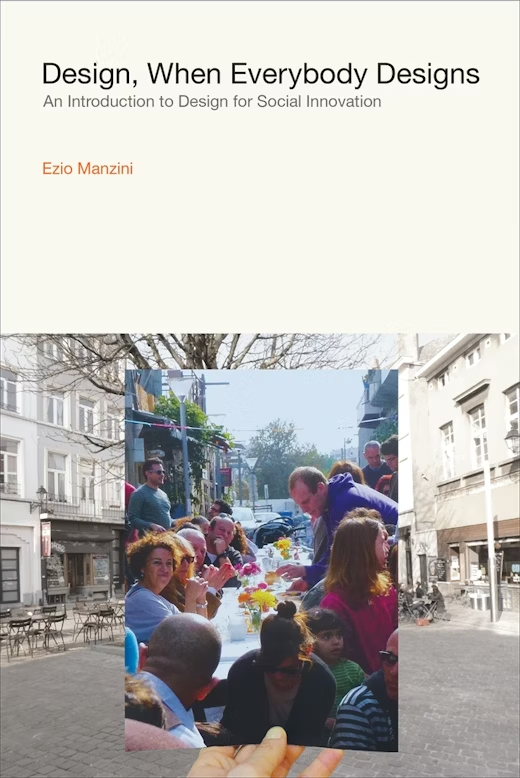
我本科时就认识 Jiang 了,16 年大四的时候。我们一起做过创客松——其实是黑客松,但我们设计背景的不太会写代码,所以叫创客松。项目需要程序员,刚好学院老师组建的 Fab Lab 上海的其中一个点位在学校旁边,老师推荐了常去那里的 Jiang,后来一直保持联系。后来他有段时间偶尔来上海,我们会约在同济旁边的麦当劳吃饭。当时以太坊刚出现 Crypto Kitties 这类早期 NFT 项目,他会给我讲比特币、以太坊,还给了我一个以太坊。
I met Jiang back in undergrad, in our senior year around 2016. We worked on a "makerthon"—basically a hackathon, though we called it that since we had a design background and didn't code. We needed developers, and one of our professors who ran a Fab Lab near campus recommended Jiang, who was a regular there. We kept in touch. Later, whenever he was in Shanghai, we'd meet at the McDonald's near Tongji. Around that time, projects like CryptoKitties were emerging on Ethereum. He would tell me about Bitcoin, Ethereum, and even gave me an ETH.
我当时就觉得对这个技术挺感兴趣,但没太理解为什么要做抗审查的东西。为什么需要这么强的隐私保护?那这样要怎么监管恐怖分子之类的坏人?所以后来我也没怎么参与。读博期间我参与了好公社(NICE COMMUNE)的一些实践,帮忙做社群运营时我突然发现问题:我们不太能真正去记录大伙儿在社群里的贡献,包括对这些贡献再有更多的支持。于是我就想能不能先把这些贡献记下来,之后再以某种方式回溯。
与此同时,我们那段时间做了个关于社区营造的的线上沙龙,把很多做社区营造的小伙伴都邀请来分享,做了很详细的前采,围绕前采内容把嘉宾分组进行了好几场圆桌讨论,当时 NICE 人力也有限,就招募了很多志愿者参与,但是很多志愿者并不是因为 NICE 这个渠道加入的,他们很多是其他社区营造项目的关注者,是因为关注其他的项目才来想来参与。所以我就想说不能光用 NICE 的名义记录贡献,应该让所有参与的组织一起维护这个"账本"。于是我突然想起 Jiang 提过类似概念——大家共同维护的分布式账本,问他能不能用技术实现。
I found the tech quite interesting, but I didn't really get the whole censorship-resistance thing. Why did this tech need such strong privacy protections? How would you regulate bad actors like terrorists? So I didn't get deeply involved at that time. During my PhD, I joined some community practice initiatives, like the NICE Commune project. While helping run the community, I noticed we couldn't really track people's contributions or reward them properly. So I thought, what if we could log these contributions and later recognize them in some way?
At the same time, we organized an online salon on community building, inviting many peers engaged in similar work to share their experiences. We conducted detailed pre-interviews and grouped the guests accordingly, holding several roundtable discussions. Since NICE had limited manpower at the time, we recruited a number of volunteers. Interestingly, many of them didn't join through NICE directly—they were already following other community-building initiatives and wanted to participate because of that. I felt we shouldn't log contributions under just the NICE name—it should be something co-maintained by all participating groups. Then I remembered Jiang had mentioned something like that: a shared, distributed ledger. So I asked if it could be done technically.
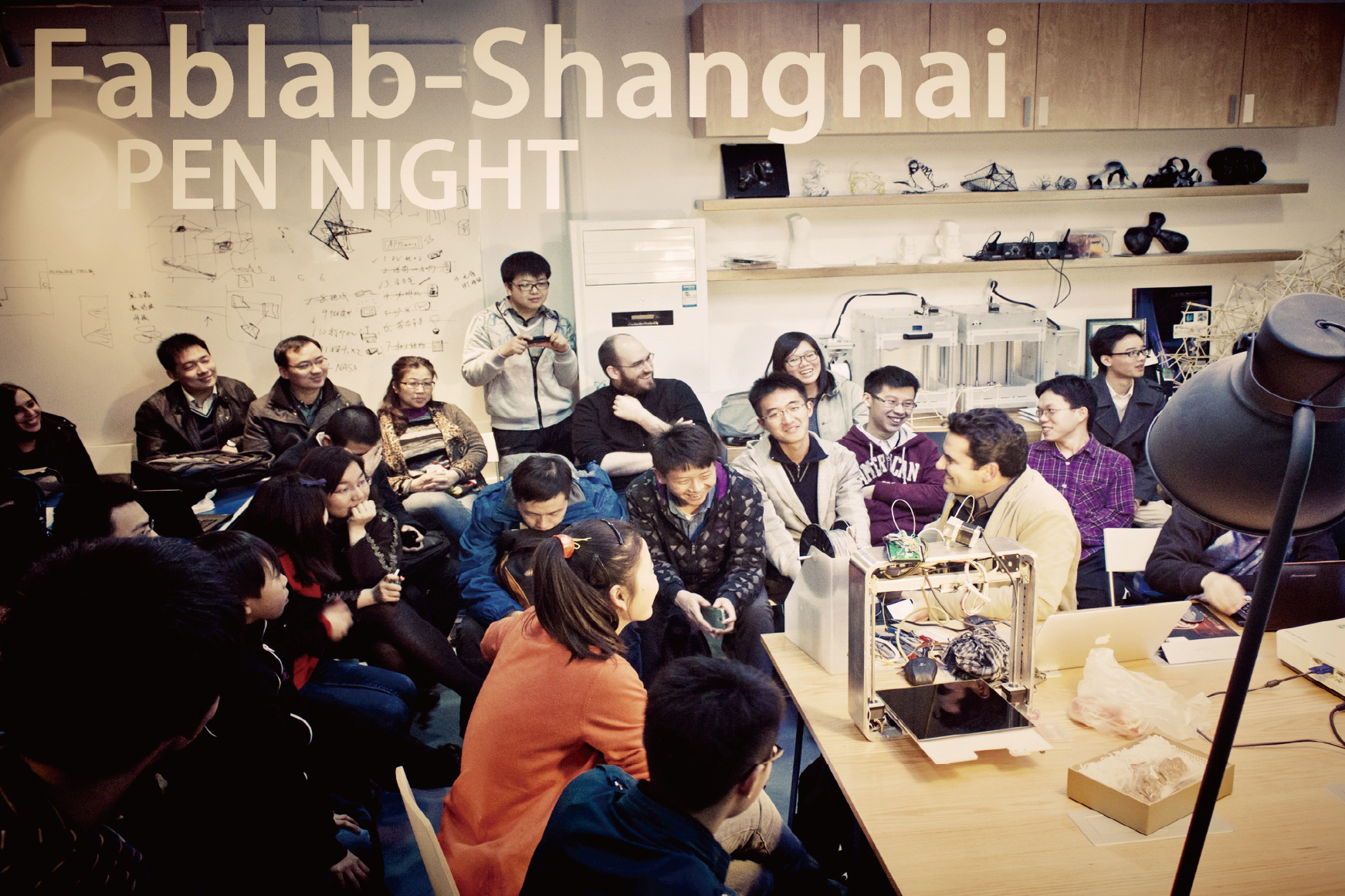
刚好那阵子在 706 也有相关讨论,Jiang 在大理 706 的时候,和 Ren 聊怎么做社群声望系统,类似 Kudos,以及社群里的 reputation。同时 Larri 在上海想搞替代性货币,打算在 706 内部发行一种新形式货币。当时 DAO 这个概念刚开始有,在国内这概念还不太常见,或者说是我没怎么见过。
Jiang 听说我的想法后,就建议我去看看 DAO 的项目,说可以帮我开发,然后他也答应了 Larri,说可以帮他开发。所以再后来我们几个就说干脆把上海 706、大理 706和 NICE 这几个社区对于社区贡献记录,声誉积累的想法整合起来做个各个社区通用的产品。前期还是几经波折的,你们看到的第一版白皮书主要是 Larri 和 706 小伙伴主要写的,后面才确定名字是 Social Layer(当时 Vitalik 还没有提过 social layer 这个概念,但叫这个名字也是呼应了以太坊的分层设计)。我是从社区的这个角度,进到了所谓 Crypto 这件事情里面。我们中间也有很多次在讨论为什么一定要上链。
Coincidentally, there were similar discussions going on at 706. Jiang was in Dali's 706 at the time, talking with Ren about building a reputation system for communities—something like Kudos or a social rep system. At the same time, Larri in Shanghai wanted to experiment with alternative currencies and was planning to issue a local currency within 706. That was when DAO as a concept was just beginning to spread, and I hadn't really encountered it in China yet.
After I told Jiang my idea, he suggested I look into DAO projects and said he could help with development. He also promised Larri to help him build his system. So later we figured—why not merge all of these community needs—Shanghai 706, Dali 706, and NICE—into one general system to track community contributions and reputation. The early stages were quite bumpy. The first whitepaper you see was mostly written by Larri and the 706 folks. We later named it Social Layer—at the time, Vitalik hadn't even proposed this term yet, but the name was inspired by Ethereum's layered architecture. I came into “crypto” from this community-building perspective. We've even debated many times whether blockchain was necessary at all.
935:Jiang 是因为什么开始接触 Crypto 呢?因为像刚刚 Eggy 讲,你在这些社群营造活动之前,就已经接触了比特币,以太坊这些。
So Jiang, what got you into crypto? It seems like you were already involved before these community initiatives that Eggy mentioned—buying Bitcoin and Ethereum, etc.
Jiang:我是大概 12 年前左右接触了点对点网络,在这之前和之后都是程序员。当时来到上海,上海文化氛围挺繁荣和活跃的,我就做些P2P 网络相关研究。 我是 13 年年底的时候第一次买比特币,那个时候有一个很大的网站叫 BTC China,14 年来上海的时候,在活动遇到 BTC China 的人,还犹豫过要不要去那儿工作。然后 16 年三月有一次我在国外旅行参加技术会议,跟朋友聊天的时候,他告诉我以太坊。五月参加 Ruby 技术社区的会议时,社区里有人在做类似以太坊交易所的东西。
我印象很深刻,那时候在上海的一个中国加速孵化器里,有一个以太坊的 Meetup。那天 Vitalik 来了,像 Ben、咕噜当时都在。从这时起我才真正开始做相关的开发,把它作为我的工作。之前都只是社区参与。我第一次买以太坊是 5 月那个 Meetup 之后,那时候 Vitalik 也就是个羞涩的青年,那时候社区里这样的奇人趣事很多,以太坊也并不是很 Special 的一个东西,不过我当时觉得以太坊这个技术也是蛮有意思的。
记得当时 The DAO 在众筹,那个故事还是挺厉害的,大家也很狂热,我也买了些以太。那时候大概 80 美金一个。后来 The DAO 不是硬分叉嘛,那时候我投了大概万把块钱吧,不过没有很担心,大不了就没了。13 年买比特币,也是因为那时候比特币价格涨到 1000 美金的时候,很多科技新闻报道,所以我那时候买的也不算便宜。现在回去看比特币价格历史图,到 1000 的时候就是我这种韭菜进场的时候。后来狠狠的跌了。那时候作为年轻人也没有什么炒股经验,跌一点就觉得很割肉。
I started around 12 years ago, first getting into peer-to-peer networks. I've been a programmer before and after that. When I moved to Shanghai, the cultural scene was really vibrant, so I started doing P2P network research. I bought my first Bitcoin in late 2013 on BTC China. In 2014, I met some BTC China folks at an event in Shanghai and even thought about working there.Then in March 2016, I was traveling abroad and chatting with a friend at a tech conference. He told me about Ethereum. In May, I went to a Ruby community event in Shanghai, and someone there was building an Ethereum-based exchange.
That really stuck with me. I remember an Ethereum Meetup hosted by China Accelerator. Vitalik was there that day—so were Ben and Gulu. That was when I really started developing in the space and treating it as work. Before that, I was just a community participant. After that May Ethereum Meetup, I bought some ETH too. Vitalik was just this shy young guy. There were a lot of quirky people in the community. Ethereum didn't even seem that special yet, but I found it technically fascinating.
I remember The DAO project was crowdfunding at the time—it was wild. I joined and bought some ETH at around $80. Then it forked. I probably put around 10,000 yuan in total, but I wasn't too worried. Same with my 2013 BTC purchase—it was around $1,000 per BTC, right when all the tech media was hyping it. Looking back now, that was definitely the retail top. Then prices crashed hard. As a young person with no investment experience, the volatility felt brutal.

935:为什么开始会关注点对点网络呢?你接触它似乎比购买 BTC 还要更早。
So what drew you to P2P networks in the first place? That even predates your crypto involvement.
Jiang:因为很有意思,很好玩。我其实大学的时候也很感兴趣。但是遇到了一些真正在搞这个东西的人才算是真正入门,之前可能都是在网上看看。要做真正颠覆性的事情,还是要找到自己的社区,一个人的话挺难呈现。
I just found them fascinating and fun. I was already interested in college. But it wasn't until I met people who were actually building these things that I really got into it. Before that, I was just reading online. To do something truly disruptive, you need to find your community. You can't do it alone.
Shiyu:Jiang 是我们几个里面唯一之前和之后都是程序员的,是不是技术背景的人会更有机会从技术的角度进入到这个圈子里。
Jiang is the only one among us who's been a programmer both before and after getting into crypto. Do you think having a tech background gives people a better entry point into this space?
Jiang:最早的比特币爱好者,什么烤猫,长铗、吴忌寒他们。他们也没有密码学背景,都是学物理,数学,经济之类的。
Well, the early Bitcoin enthusiasts—people like Kaomao, Changxia, Wu Jihan—they weren't all from cryptography backgrounds. Some studied physics, math, or economics.
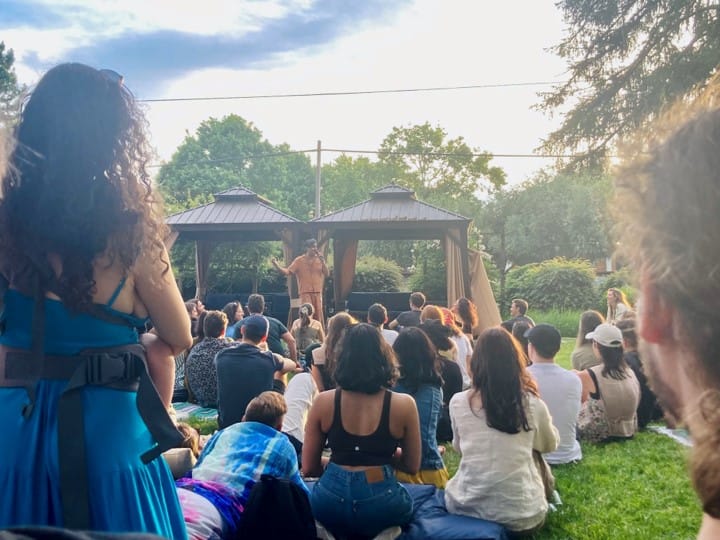
早期的 Crypto 纯爱社会
The Early Days of Crypto Pure-Love Society
Shiyu:你谈到一开始接触的时候是点对点网络,后面才有去买 BTC、以太坊之类。在 Crypto 这个圈子里,持有和使用都会成为切身参与,把你的钱或者是注意力放在这里就意味着支持。那你最初是把它视为一种理财产品多一些,还是说更侧重于技术本身?还是你觉得中间的差异并不重要。
I remember you said you first encountered peer-to-peer networks, and only later began buying BTC and Ethereum. In the crypto space, holding or using assets inherently means participating—putting in your money or attention signals support. So at the beginning, did you see it more as a financial product, or were you more drawn to the technology itself? Or did you think the distinction didn't really matter?
Jiang:我觉得是一个社会实验。就算这东西能涨十倍,我也发不了大财,投一万块钱涨了十倍就是十万,改变不了我的人生。不像有一些人是卖房去买比特币。甚至那时候我都很难想象涨十倍。我也感觉那时候对我来说可以去做这些高风险的尝试,但本身这些风险对我来说都是可控的。我也很难预期它会给我带来改变人生这种程度的收益。
I saw it as a social experiment. Even if it went up tenfold, I wouldn't get rich—a tenfold gain on 10,000 yuan is still just 100,000, not enough to change my life. I wasn't like those people selling their homes to buy Bitcoin. Back then, I couldn't even imagine it going up that much. I just thought I could afford the risk, and that it was manageable. I never expected it to be life-changing.
935:你们那时候的圈子应该也是一个早期纯爱社群,一群对点对点网络的结构有期待的人,比较理想主义,会研读专业著作,向往自由市场经济,对比特币白皮书里谈到的网络有一定期待。你们当时主要是通过什么方式交流的?
It sounds like you were part of an early “pure love” community—a group of people excited about the structure of peer-to-peer networks, deeply idealistic, reading technical books, embracing the idea of free markets, and placing hope in the kind of network described in the Bitcoin white paper. How did you communicate with each other back then?
Jiang:每月我们有线下聚会,还有技术会议。当时比特币只是众多技术中的一种,还有 Tor,Scuttlebutt,都很有颠覆性。大家就追求更酷的技术——其实很多技术都厉害,而比特币击中了资本主义的核心,后来成为一个伟大的运动。
We had monthly offline meetups and technical conferences. Back then, Bitcoin was just one of many technologies—Tor, Scuttlebutt, and others were also revolutionary. We were chasing what felt like the coolest tech. Many of them were powerful, but Bitcoin struck at the heart of capitalism and eventually became a great movement.
935:也就是说早期除了 BTC,很多人也在做其他的协议,那时候 BTC 还没完全处于垄断地位?
So it wasn't just BTC early on—many were working on other protocols? BTC hadn’t dominated yet?
Jiang:也不是,就是有很多不同的方向,比如现在的 Tor 网络。比特币当时还很早期。那时候都是百花齐放的,不是只有比特币。我当时还觉得 Scuttlebutt 很快就可以超过比特币的社会影响力,他们是真的纯爱社区。
It's not that BTC hadn't emerged, but there were many directions, like the Tor network that still exists today. Bitcoin was still early stage, and the scene was full of diverse projects. At the time, I even thought Scuttlebutt might surpass Bitcoin in social influence—they were truly a pure-love community.
Shiyu:在 Crypto 这个圈子里,币价的增长某种意义上来说也代表着人们对于它的信仰的增长。那个时候没有办法确定比特币,以太坊这样的技术会俘获多少人,有多少人会来信仰。在你的经验里,信仰比特币以及它所带来的最终愿景的人,和那些在纯爱社区里做事情,做一些真正技术研发的人,你觉得是同一拨吗?今天他们还留在这个圈子里面,还在继续信仰吗?还是说他们在持续探索新的技术,慢慢的就离开了?
In crypto, price growth to some extent reflects growth in belief. Back then, it was unclear how many people would be drawn to BTC or ETH. In your view, are the people who believed in Bitcoin's ultimate vision the same ones who were doing serious R&D in the pure-love communities? Are they still around today? Or have they moved on to explore new technologies?
Jiang:都有。坚持下来的人也不少,信仰还是在的,只是大家随着年纪增长,觉得也该干点别的事情。比如 Scuttlebutt 的创始人就很放得下,现在不做技术也不写代码,虽然要去哪个大厂也完全没问题,但是他现在选择去开船,在公海上航行。
Both exist. Quite a few have stayed, and the belief is still there. But as people grow older, they feel it's time to do something else. For instance, the founder of Scuttlebutt let go completely—he no longer codes or works in tech. He could join any big company if he wanted, but instead he chose to sail on the open sea.
Shiyu:有点像写加密无政府主义宣言的 Timothy May,早期在英特尔拿到了足够的股权,即使后半生不工作也可以做自己想做的事情。于是他后面就去做密码朋克,写一写科幻小说什么的。
That's a bit like Timothy May—he got Intel stock early on and could live the rest of his life doing what he wanted. So he went on to be a cypherpunk and wrote sci-fi.
Jiang:May 那种是少数人,财务自由了去做做别的,但有些人不是这样。他的退出不是因为赚够了钱,Scuttlebutt 创始人现在有时候开船帮别人做运输,赚的钱比当程序员的时候少得多。但他觉得就是很开心,所以就不想写代码了。但中国人可能会觉得我是不是还没赚够?有些人就没有那么多心理包袱。人家的风险可能是另外一种,比如明天能不能活着上岸,而不是说能不能还上房贷。
May is a rare case—he did it because he was financially free. But others are different. The Scuttlebutt founder didn't leave because he'd made enough money. He still captains boats for transport jobs, making much less than a programmer—but he's happy, so he doesn't want to go back to coding. Chinese people might think, “Have I earned enough yet?” But some people don't carry that burden. Their risks are different—like whether they'll survive landing tomorrow, not whether they can repay a mortgage.
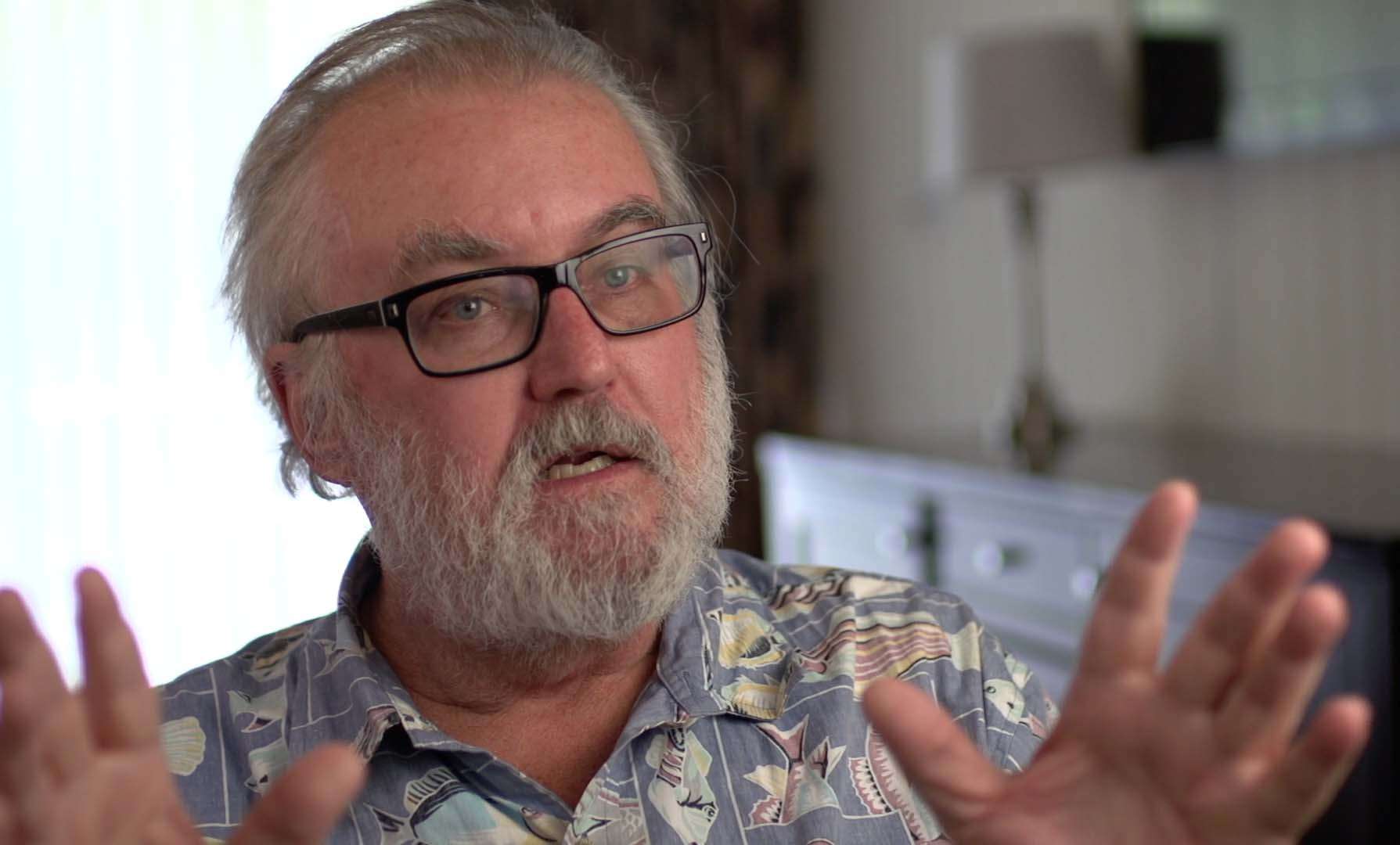
Shiyu:这也是对未来风险承担能力的评估,和生活方式的差异。他面对的是生命的风险。那你们有过为爱发电,导致资产余额跌破心理预期的状态吗?有怀疑过理想主义和它的一系列产物,怀疑自己在做的事情吗?
That's really a different way of assessing risk, a different lifestyle—he's dealing with existential risks. Have you ever lost more than you expected from passion projects? Have you ever doubted idealism or what you were doing?
Eggy:我对钱其实不太敏感,家里虽不富裕但给了我足够安全的环境。像是 Jiang 送我一个以太坊,或者币价的涨跌这些,对我的心态影响不是很大。我的个人状态是始终在寻找某种意义的过程,可能有点理想主义吧。而且我其实也没有亏太多钱,只是没有赚钱而已。这跟 Jiang 不一样,他亏了很多钱。
I'm not very sensitive to money. My family isn't wealthy, but they gave me enough of a sense of security. Like when Jiang gave me one ETH or when prices rose and fell—it didn't affect my mindset much. I've always been searching for meaning, which might be a bit idealistic. And I didn't really lose much money—just didn't make any. Jiang, on the other hand, lost quite a lot.
935:这算是社区里面共性的问题,有时候为爱发电的时候,不仅是钱,也需要在你的时间和精力上面去权衡。除了为爱发电的项目以外,你生活中也有其他所谓社会要求你去干的那些“正事”。大家是怎么平衡的呢?
That seems like a common problem in the community—passion projects cost not only money but also time and energy. Meanwhile, life requires you to take care of other “real responsibilities.” How did you balance that?
Shiyu:我每次和 Larri 聊的时候,他都会问你现在是凭借什么生存的?现在的生存状态怎样?他说自己要找到工作,先生存,然后才能写作。由于要先生存才能写作,所以他一直没有写作。
Every time I talk to Larri, he asks: “How are you surviving right now?” He says he has to find a job, survive first, and then write. But because survival has to come first, he hasn't started writing yet.
Eggy:当时 Larri 离开 Social Layer 可能也有一部分是这个原因。最近身份转换确实让我有些焦虑了,一方面是做妈妈,另一方面又要从学生转到成工作的状态,得开始考虑赚钱的事情。之前的话,读博期间是需要平衡社区的实践和学术的产出压力,我一开始感觉还能应付,但真要完成学位确实得投入整块的时间,于是只能逐步退出一些社区的工作。我是会有些内疚因为自己的事情而耽误了,但这个阶段确实就不允许你去做那么多。
That might be part of why Larri left Social Layer. Lately, I've also been anxious about shifting roles—on one hand I'm becoming a mother, on the other I'm transitioning from student to working professional, so I have to start thinking about earning money. During my PhD, I had to balance community work and academic output. At first I could manage, but writing the dissertation required full focus, so I had to gradually step back from the community. I did feel guilty for slowing things down, but at this stage, there's only so much I can do.
Shiyu:那 Jiang 参与的这些早期纯爱技术社区的日常状态是怎么样的?除了在线上见面以外,大家有没有线下见面,后来发展出 crypto 以外的私人友谊?以及早期的这些人大概都是什么样的背景,有没有什么共同的特点?
What was the daily life like in those early “pure love” tech communities that Jiang was involved in? Besides meeting online, did people also meet offline and develop personal friendships beyond crypto? What kinds of backgrounds did these early participants have? Were there any common traits among them?
Jiang:Ruby 的技术社区就真的很棒。这些人都很有才华,又有文艺青年的气质,技术也很好,视野很广阔,乐于助人和分享,参与 Ruby 社区给了我探索更大的世界的勇气。Scuttlebutt 社区也是,作为一个 Social Network 的创始人,Dominic 真的非常棒,特别慷慨、善良、有才华,多才多艺。
早期 Scuttlebutt 上面大家分享的东西,就是我家后院的花花草草,我做的饭,我的孩子今天学会说新句子之类的,是很温馨,多维度的,真实又具体的情感的流动。大家很有才华,非常 open minded。文化的差异虽然在那里,但这个社区没有权力结构,交往都是非常真诚的。但是当然也不是所有技术社区都这样,通常不是这样的。
The Ruby tech community was truly amazing. These people were all very talented, had an artistic vibe, were technically skilled, had broad vision, and were generous and eager to share. Being part of the Ruby community gave me the courage to explore a bigger world. The Scuttlebutt community was the same. As the founder of a social network, Dominic was truly outstanding—very generous, kind, talented, and multi-talented.
In the early days of Scuttlebutt, people shared things like the flowers in their backyard, meals they cooked, or how their child learned a new sentence that day—it was a warm, multidimensional, real and tangible emotional flow. Everyone was talented and very open-minded. There were cultural differences, of course, but the community had no power structures, and the interactions were very sincere. But of course, not all tech communities are like that—usually they're not.
Shiyu:虽然是技术社区,但技术只是把大家连接到一起的媒介,或者说共同点。实际上你们的交往方面还是非常贴近生活,像朋友和邻居一样去交往。那为什么只有这几个技术社区如此纯爱呢?
Even though it was a tech community, technology was just the medium, the common thread connecting people. In reality, your relationships were very close to daily life—like friends and neighbors. Why were only a few of these tech communities so “pure love”?
Jiang:你是怎样的人就会有怎样的圈子。这几个社区的创始人真的是很很聪明,有才华,又很善良和慷慨,所以他们创造了这样一个场域。Ruby 社区和 Python 的社区就非常不同。那些一听就很火、门庭若市的技术社区,跟听起来没什么用、小众爱好者为主的社区,在社区的氛围上就是会非常不一样。如果大家是因为觉得这个东西有用才来,那就会各种人混杂在一起,而小众的社区里面,大家就非常惺惺相惜。可能整个地球上都没有多少人关心它,但是既然我们都关心同一件事,那就肯定非常的志同道合了。
The kind of person you are determines the kind of circle you're in. The founders of these communities were incredibly smart, talented, kind, and generous, so they created that kind of space. The Ruby and Python communities are very different. The tech communities that sound hot and crowded are quite different in vibe from the niche ones that seem “useless” and are mostly made up of enthusiasts. When people come because something is useful, you get a mix of all kinds. But in niche communities, people feel a deep sense of mutual understanding. Maybe only a handful of people on the planet care about this thing, but since we do, we must be deeply like-minded.
Shiyu:现在这些人现在还留在社区吗?总会有新的人进来,旧的人离开。这些纯爱社区的流动性大吗?后面加入进来参与的这些人相比起来,有没有什么明显的变化?
Are these people still in the community now? Newcomers always come, and old members leave. Is there high turnover in these “pure love” communities? Do the people who joined later differ significantly from the earlier ones?
Jiang:都在慢慢流失。大家都变老了。如果没有新鲜血液补充,没有年轻人,这个社区就会很危险。回归编程以外的日常的生活,回归家庭,去做别的事情,或者做别的社区都有。现在整个互联网从业者的 Demograph 都发生了变化。以前研究这种小众技术还是挺有情怀的,现在首先是没什么人研究,大家都是奔着大厂和赚钱的机会去的。新生代的青年程序员,对这些有趣的技术不怎么关心,而是在乎能不能得到更好的机遇,对于技术背后的精神是不太在意的。以后加密可能也会这样,等到加密技术很普及的时候,大家可能也不再想起中本聪了,只会想着比特币有用。这可能才是主流。
Most people are slowly leaving. Everyone's getting older. Without new blood, without young people, the community becomes endangered. Some return to everyday life beyond programming, return to family, pursue other things, or join other communities. The demographics of internet workers have changed entirely. Back then, studying niche tech had a sense of sentimentality. Now, hardly anyone studies these things; everyone's chasing jobs at big companies and opportunities to make money. The new generation of young programmers doesn't care much about interesting technologies; they care more about getting better opportunities. They're not very interested in the spirit behind the technology. Crypto might go the same way—once the tech becomes mainstream, people may forget Satoshi Nakamoto and just think about how Bitcoin is useful. That might be the mainstream future.
Shiyu:互联网似乎已经不再是最先锋的事情。以前加密也是比较先锋的,现在我们都不太确定了。技术精神可能也进入到了衰退期,现在有更新的东西来做代表。在今天,技术以及技术哲学的问题好像已经不再是能不能改变世界,而是有没有让这个世界变得更好。任何事情都有生命周期。技术精神也一样。我一度以为在信息技术的浪潮之后是社区,现在我也无法判断到底是不是,但新的东西是比技术更加关心人的。你觉得现在能代表人类的先锋潮流的是什么呢?
It seems like the internet is no longer the frontier it used to be. Crypto used to be frontier too, but now we're not so sure. The spirit of technology might be declining. Something newer might be taking its place. Today, the core issue of tech and tech philosophy is no longer “can it change the world,” but “can it make the world better.” Everything has a lifecycle—even the spirit of technology. I once thought the next wave after information tech would be community, but now I'm unsure. But whatever is new, it seems to care more about people than tech. What do you think represents the vanguard of humanity now?
Jiang:我没有结论。人口问题以及过去这几年的教育问题导致未来青年的精神世界降维了。现在的青年人很平庸,他们的世界很狭窄,对于事物的探求欲望和批判力度也很弱,我看到少了很多渴望。年轻人得到的教育培养比我们一代要好的多,但他们失去了那种饥渴感。我希望只是自己的观察偏差。
I don't have a conclusion. Demographic shifts and problems with education over the past few years have led to a spiritual degradation among the youth. Today's young people are mediocre. Their world is narrow. They lack curiosity and a critical spirit. I see a lot less hunger. They've received better education than our generation, but they've lost that thirst. I hope this is just my personal bias.
Eggy:我觉得身边搞技术的人还是比较勇敢的走在时代前面的。我觉得可持续这个议题也很有代表性,本质上比较激进。但大家大多不是做技术的。但如果说既然如此我们就不要技术,或者过低技术的生活,这也不好。我倾向于太阳朋克,在发展技术的同时,去达到一个可持续的未来。包括我们也需要引入新的价值体系,来判断究竟什么才是增长和进步。
I still see tech people around me being brave and walking at the front of the times. I think sustainability is also a very representative issue—at its core, it's quite radical. But most of the people concerned with it aren't in tech. That said, I don't think the solution is abandoning tech or living a low-tech lifestyle. I lean toward solar punk—developing technology while aiming for a sustainable future. We also need to introduce new value systems to judge what really counts as growth and progress.
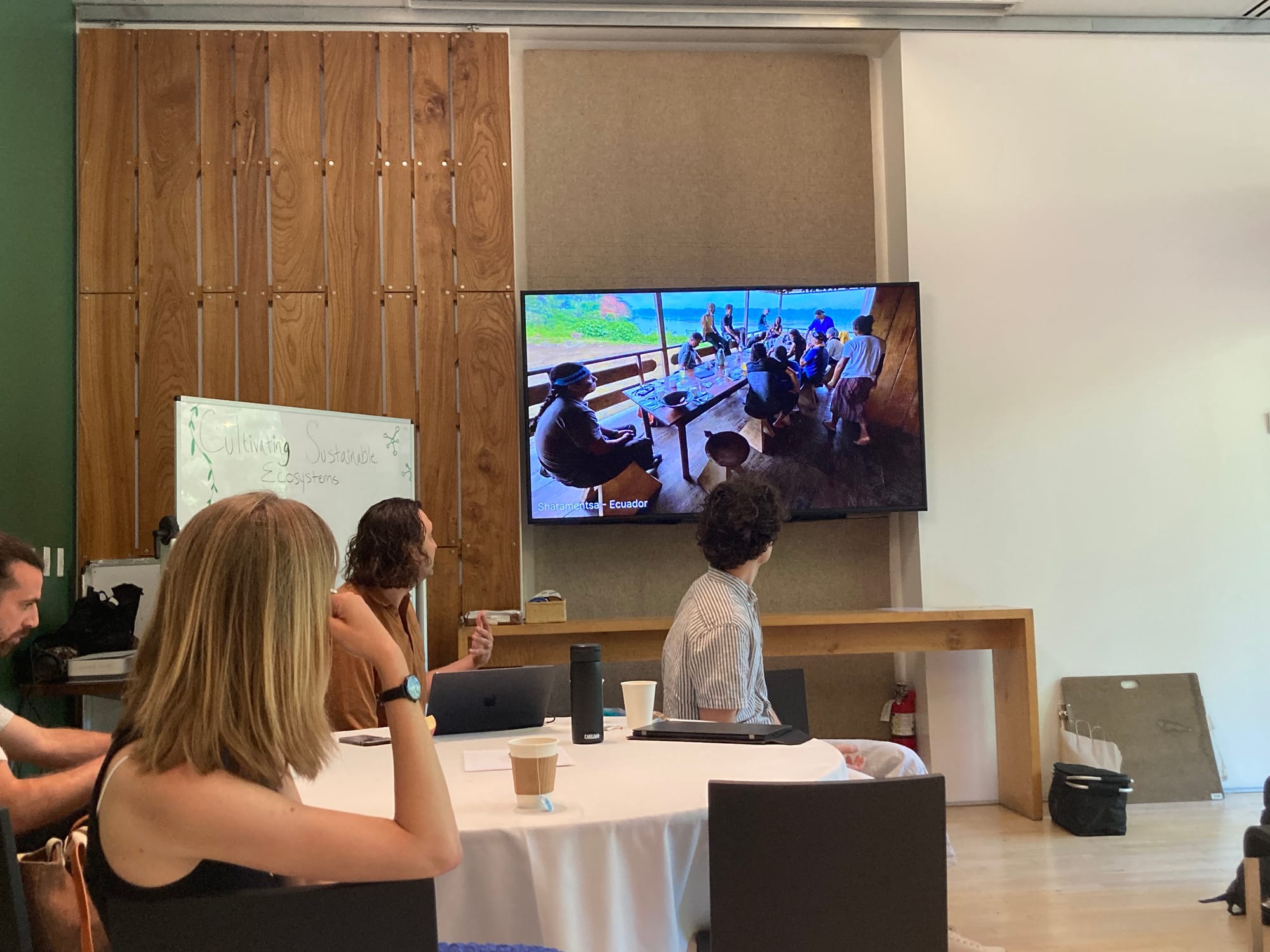
把社区作为方法?
Community as Method?
935:我们都处在当下这个时代的情景当中,不管是 Crypto 圈子或者是更广泛的社群营造,似乎都是以各自不同的思路去解决个体以及部分社会异化的情况。只不过 Crypto 采用的是以技术为手段去尝试解决这些问题,而社群是用一种社区共同体的力量。Jiang 是为什么开始进入到国内的这些独立社群里面呢?
We are all situated within the current era. Whether in the crypto space or broader community-building efforts, it seems that everyone is trying to solve the alienation of individuals and parts of society in different ways. Crypto attempts this through technological means, while communities rely on the power of collective living. Why did Jiang start getting involved in these independent communities within China?
Jiang:我很早就参与各种社群,14 年同济的 Fab Lab,新车间,那时候上海还有很多读书会,都很有意思。我在用的一个编程语言叫 Ruby,它的开发者社区也非常友善、包容、创新。技术社区和创作者比较纯粹,大家参与社区的方式就是分享自己做的事情。但回到家里面还是要解决很多柴米油盐的问题。
I've been involved in various communities since early on. Back in 2014, there was the Fab Lab at Tongji University and Xinchejian (新车间). At the time, Shanghai had many book clubs too, which were quite interesting. One of the programming languages I use is called Ruby, and its developer community is very friendly, inclusive, and innovative. Tech communities and creator groups are generally very pure; people participate by sharing what they've made. But once you're back home, you still have to deal with all the daily chores and necessities.
935:现在看起来 Crypto 那套至少现在还不能够落地的技术理想,让大家目前都有点信心低谷。那么,把社区作为解法这件事,目前这么多年感受下来,你们觉得有什么变化吗?
Looking back now, it seems that the idealism of crypto—at least for now—hasn't been able to land in reality, and that's made people lose a bit of confidence. So, using community as a solution: after all these years, how do you feel about the changes?
Eggy:我还是蛮相信把社区作为方法的。我们刚刚聊 Crypto,没太提到在传统社群里有什么感受。但其实社群提供的主要是土壤。大家可能是怀着某种目的来参与,比如社群的最高愿景,技术社群就是希望用这些技术将世界变得更好。找到自己做这件事的共同认可,也会感觉没有那么孤单,不一定帮你对接什么资源,让你飞跃或是真的自由,但是就是有那么一群人告诉你做这件事是有意义的,要继续相信,或者继续往前走。因为我觉得很多时候你做这些事情背后的大的愿景和理想主义的部分,是很难被解释称现实社会的某个动机的,别人会觉得你是不是傻瓜。
接触 Crypto 之后跟别人讲 Web3 和加密,我就会有这种对比,在参加那些 Pop-up city 的时候,我至少会觉得至少有这么一大部分人相信有这么个东西,不能说是信仰,只说是某种 belief system,大家就会觉得我做的事情可以被解释。它包装了一层可以让我去相信的东西,这种东西又需要一群人互相支持,才能继续相信。
所以我觉得有时候叙事是必要的。虽然不一定能实现,但是至少我们这群人互相认同,继续在这种状态下努力。当然在经过层层包装之后你可能会看不清这个现实,因为我们不可能一直活在这个社群,这个社群也不能脱离本身现实的环境去存活。大家可能有点抽离,有点真空,而不是真的去考虑技术在实际落地上面遇到的困难。
我们一方面需要相信这套叙事,一方面需要有一些信仰,另一方面我们也需要真的落地去解决一些很现实的问题,而不是因为某些叙事问题搞帮派政治,变成一个不跟外界接触的微缩社会,重复外部社会我们所唾弃的那套结构,最后还是脱离不了霸权,强势的权力,为了满足自己的心理需求去争夺权力。可能大家最开始是不喜欢这些东西的,但是我们创造了一套叙事,重新建立一个我们所谓的实验社区后,仍然还是会有这些东西出现。而且在叙事的包裹之下大家反而不会去反思了。既然不喜欢,为什么我们又创造出了恶龙呢?
I still really believe in community as a method. We were just talking about crypto, and didn't really touch on our experiences in more traditional communities. But actually, what communities provide is mainly soil. People might join with a certain purpose in mind—like the ultimate vision of the community. For tech communities, it's the hope that these technologies will make the world better. Finding shared recognition in your efforts can make you feel less alone. It might not necessarily connect you to useful resources or give you freedom, but at least there's a group of people affirming that what you're doing is meaningful—that you should keep believing, and keep going. Because I think a lot of times, the grand visions and idealistic motives behind what you're doing can't really be explained in terms of real-world logic. People might think you're a fool.
After I got into crypto and talked to others about Web3 and encryption, I started noticing this contrast. When I participated in those pop-up city events, I at least felt that there were many people who believed in the same thing—not necessarily a religion, but some kind of belief system. And that makes you feel like what you're doing can be explained. It gives it a layer of meaning you can hold onto. But that kind of belief needs mutual support from a group in order to be sustained.
So I think sometimes narrative is necessary. Even if the goal isn't achievable, at least we agree with each other and continue to work under that framework. Of course, after layers and layers of narrative-building, you may start to lose sight of reality, because we can't live in the community bubble all the time, and the community itself can't survive apart from real-world conditions. People may become detached, in a vacuum, without truly considering the practical challenges of technology implementation.
On one hand, we need to believe in the narrative. On another, we need faith. But at the same time, we also have to actually land and address some very real problems. Not use the narrative as an excuse for factional politics, turning into an isolated micro-society that repeats the same power structures we originally despised. We still fall into hegemony and power struggles, just to satisfy psychological needs. Maybe we didn't like those things to begin with, but after creating a narrative and a so-called experimental community, we still reproduce those things. And with the narrative as a cover, people stop reflecting. If we didn't like it—why did we end up creating the monster?
Jiang:我觉得社区本身就是很棒的,并且未来大家都真正地需要社区,在生活和共享方面,社区有很多支持和解决方案,从科技人文学术交流到艺术和生活,养老,教育、医疗等等。过去几年社区发展的很快,未来也应该继续。现在很多问题既没有办法被商业解决,也没有办法在个人或者政府层面解决。那就只能在社区层给一个好的解决方案。未来AI时代会有很多真正的社会危机和矛盾,是来自于技术变革的,我们会迈入新的赛博朋克时代。社区可能是这种危机的解决方案和个体的社会安全网。
不知道是不是我的认知偏差,我发现现在年轻人参与社区其实比较少。我们的社区随着我们的年纪增大在不断的变老。现在的年轻人认知世界的方式又没有那么依靠社区。我依然相信很多叙事和理念,如果放到更远的更大的范围,有很多疫情期间自下而上的草根运动,或者是理想主义的一些项目,像维基百科、互联网档案馆,Open Street Map,都是十几年的项目,发展的挺健康的,虽然很慢,也有很多消耗,但人家依然在这里,并且感觉十年后继续会在。因为他们做的事情,提出的愿景和最后的目标跟自己最初想要的状态是比较匹配的。如果说做产品有 PMF 的话,就是说社区的愿景跟现实达到了比较好的匹配,Vision-Reality Fit。很多密码朋克和这种 P2P 网络的愿景也是真实的。
我现在依然会去了解和参与。但在这个过程中,有些社区的问题是把愿景当成商业,有很多骗子和混子在这里心口不一,把过于美好的愿景变成创业,最后发现没有达到想要的状态。 我也在思考真正的理想状态是什么?如果可以有一个 fix,会是怎样的 fix,去修复这个问题?
I think community itself is wonderful. And in the future, people will truly need communities. In areas like daily life and shared resources, communities offer a lot of support and potential solutions—ranging from science, technology, and the humanities to art, life, elderly care, education, and healthcare. Communities have developed quickly over the past few years, and they should continue to do so. There are many issues today that can't be solved by business, or by individuals, or by governments. So solutions can only come from the community level. I think in the coming AI era, we'll face many real social crises and conflicts, driven by technological change. We'll enter a new cyberpunk age. And community might be both the solution to those crises and the social safety net for individuals.
I don't know if this is just my own cognitive bias, but I've found that fewer young people are getting involved in communities. Our community is aging along with us. And today's young people don't seem to rely on communities to understand the world the way we did. I still believe in many narratives and ideals, especially if you zoom out and look on a larger scale. During the pandemic, there were many bottom-up grassroots movements or idealistic projects like Wikipedia, the Internet Archive, and OpenStreetMap. These are all decade-long projects that are still growing—slowly, with plenty of friction and cost, but they're still here. And they feel like they'll still be here ten years from now. Because the things they're doing—their visions and goals—are quite aligned with the states they initially envisioned. If building a product requires PMF (product–market fit), then communities need a kind of Vision–Reality Fit. Many cypherpunk and P2P network ideals were real and sincere.
I still pay attention and participate. But in the process, some problems arise when people start treating vision as business. There are scammers and freeloaders—people whose words and actions don't match. They turn beautiful visions into startups and later realize it didn't turn out how they hoped. I'm also thinking about what the true ideal state might be. If there could be a fix, what would that fix be—to repair these problems?
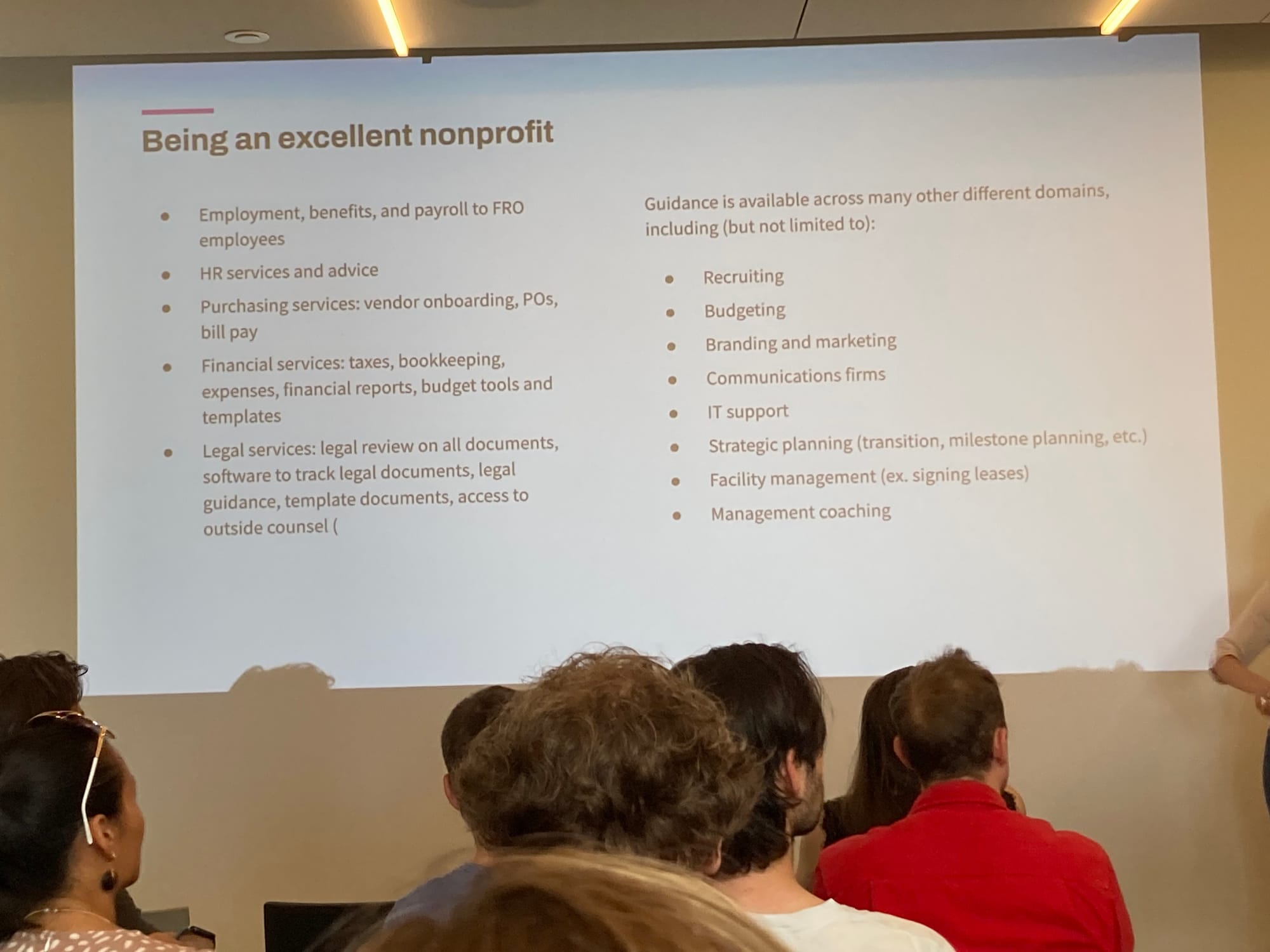
叙事、商业和真实科幻
Narrative, Commerce, and Real Sci-Fi
Shiyu:我一开始了解到以太坊协议的时候,虽然不懂技术的部分,但是大概知道这个技术想做什么事情。如果这样的一个愿景它不成为商业,那就要成为别的东西。愿景如果单纯只是一个愿景,可能永远只是浮在天空之上的东西,没有办法惠及这个地面上的世界。如果愿景不成为商业的话,那有没有别的比商业更好的方式呢?哪怕不是大多数人,让少数人受益也可以。
When I first learned about the Ethereum protocol, I didn't understand the technical aspects, but I had a rough idea of what it aimed to do. If such a vision doesn't become a business, then it needs to become something else. A vision, if it remains just a vision, may always float in the sky and never benefit the grounded world. If it doesn't take the form of a business, is there a better alternative than commerce? Even if it doesn't benefit the majority, benefiting a few would already be worthwhile.
Jiang:他们的问题是把叙事变成商业,大家比谁吹的牛更大。愿景当然应该商业化才能够走得长久。但我的意思是他是把讲故事本身变成商业的感觉。不光是他们,整个市场也对这些买单。故事成了生意。讲故事的能力甚至变成了唯一的生意。里面加入的都是最纯粹最美好的技术和理念,像是 Regen,Public Goods,Governance。Longevity 倒是很 Make sense 的。Desci 的底层开放数据这部分是很好的,但很多其实也是炒概念,因为科学的故事很大。最后大家比拼故事和品牌,慢慢的真正做事情的人就得不到激励,坏人越来越多,非常丛林法则。
The problem is that storytelling has been turned into business—everyone competing to see who can make bigger promises. Of course, a vision needs commercialization to be sustainable. But what I mean is that storytelling itself has become the business. And it’s not just them—the entire market buys into this. Stories have become commodities. The ability to tell a story is now sometimes the only “product.” These narratives are filled with the purest and most beautiful ideas and technologies—Regen, Public Goods, Governance. Longevity actually makes sense. The open data part of DeSci is great too, but much of it is just hype because science lends itself to grand stories. Eventually, people compete on narratives and branding, the real doers lose incentives, and bad actors multiply. It's a survival-of-the-fittest jungle.
935:过去我对于这个圈子一直有一种期望,我知道这里有很多玩商业的人,但一直都觉得挺正常,任何行业都是这样,总有大部分人追求现实和世俗的目标,小部分人做理想。但我潜在的信任跟期待是那批做理想的人,他们能够守得住。只要有理想的那批人存在,事情总是能发展。他们总是能把一切往美好的、具有意义的方向去推。但现在我意识到一些更现实的问题。真实世界的情况是,做理想的人也会被环境影响跟裹挟,不是处在一个完全靠自己力量不受环境影响,还能够一直发电的状态。或者说他要去达到这种状态,其实是需要很多艰辛的努力和可行的现实条件。
我觉得 Social Layer 的那些早期实践都超有意义,比如 Larri 在上海做的可替代性货币,夸夸数据库,还有栗子和 Jojo 做的实践伙伴数据库,我们真的在突破尝试那些传统社会里面异化我们的东西。很长一段时间我都觉得 Social layer 是所有我看过的以太坊应用里不管是从落地程度还是愿景上,最有价值和意义的应用。但为什么这几年下来 social layer 或类似的概念愿景并没有被更广泛地去使用和推广?是不是因为大家确实被这种迷雾裹挟,分不清到底什么东西是更有价值更值得去推动的,以及什么只是一个说故事比赛而已?
I used to have certain expectations of this community. I knew many people were here for business, but that seemed normal—every industry is like that. Most people pursue practical, worldly goals, while a small number chase ideals. But I placed my trust and hope in that idealistic group, believing they would hold the line. As long as those idealists existed, things would keep moving in a meaningful direction. But I'm realizing now that even idealists can be swayed or consumed by their environment. They're not in a bubble where they can keep generating energy unaffected. To stay idealistic in reality requires a lot of hard work and viable conditions.
I've always found early experiments in the Social Layer space incredibly meaningful—Larri's alternative currency in Shanghai, the compliment database, or the peer database by Lizi and Jojo. These were real attempts to break away from the alienation of traditional society. For a long time, I thought Social Layer was the most valuable and meaningful Ethereum application I'd seen, both in terms of implementation and vision. But why, after all these years, hasn't this concept seen broader adoption or promotion? Is it because people are lost in the fog, unable to distinguish what's genuinely valuable and worth pushing, from what's just another storytelling contest?
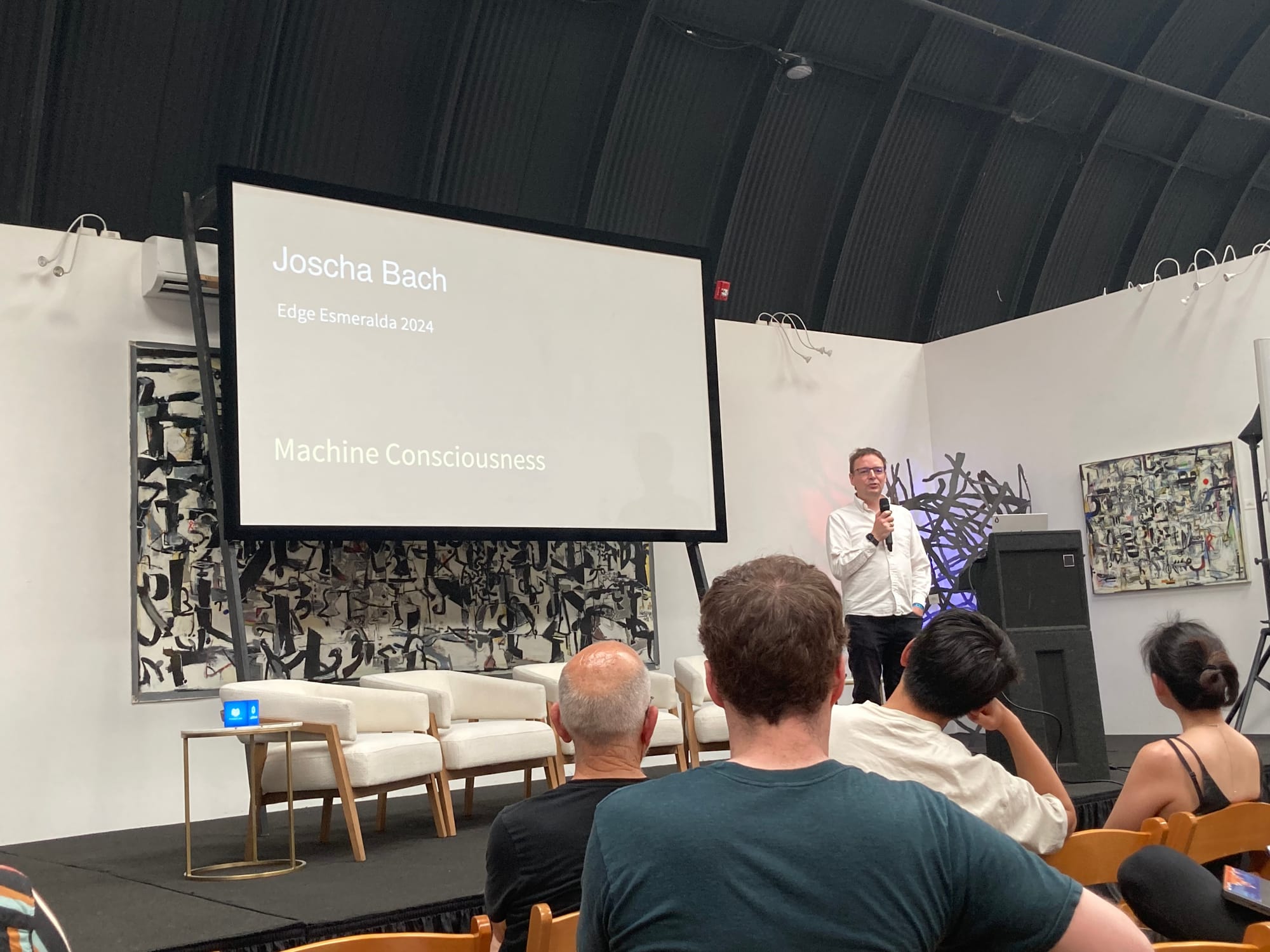
Shiyu:我们回到一个还是比较偏理想主义的讨论的视角的话,任何具体的技术想要被大众所接受,其实都需要有建基于想象层面的故事。我相信区块链,比特币、以太坊都是一样的。我觉得是不是圈子的问题,可能其实是在于大家都把注意力过多的放在那些故事上面,但是那些故事可能是关于几百年几千年以后的。上一次在采访胡老师的时候,他谈到说作为比特币支持者,他会想象一个比特币本位的世界。这个世界能不能惠及大多数,才是大家是否为它的故事,商业或者理想买单的理由。Social Layer 会给自己写什么样的故事?如果 Social Layer 成为了这个社会的基石性的工具和技术,你们会想象一个怎样的世界?
When we return to a more idealistic perspective, any concrete technology that seeks public acceptance needs a story grounded in imagination. I believe blockchain, Bitcoin, and Ethereum are all the same in this regard. Perhaps the problem isn't the space itself, but that people have focused too much on stories about hundreds or thousands of years into the future. In my last interview with Professor Hu, he said that as a Bitcoin supporter, he imagines a Bitcoin-standard world. But whether that world can truly benefit the majority is the real reason people would buy into the story—whether commercially or idealistically. So, what kind of story will Social Layer write for itself? If it really becomes a foundational tool and technology in society, what kind of world do you imagine it creating?
Eggy:这就是我们一直写不出 deck 的原因(笑)。
That's exactly why we haven't been able to write a proper deck yet (laughs).
Jiang:如果说产品的话,希望做出大家真正会用并且好用的产品,开放开源,以用户为中心,并且它本身也成为一个社区,会持续的得到维护,在这个状态我还挺开心的。今年以更深刻的思考是 Social Layer 的徽章体系以及我们说的 credential 的网络,将来会成为 web of trust,去构建人和人的信任和社区中的互动。
未来我想要实现的是它成为社区常用的管理平台。围绕着社区的不光是这些一次性的事情,还有长期互动的形成,我觉得要成为一个可编程(programmable)的社区平台,可以在上面规划社区的结构,如何on board和治理,记录大家的参与和贡献,有哪些身份角色,有什么权限等等。很多社区里就是要解决这些问题。Notion非常多功能,但我觉得它最棒的功能是权限管理,但是还是做不到非常定制化,可编程。
From a product perspective, I hope to create something truly useful and user-friendly—open-source, user-centered—and that the product itself becomes a community, one that can be continually maintained. I'd be very happy in that state. This year I've been thinking more deeply about Social Layer's badge system and our idea of a credential network, which could eventually become a web of trust, building relationships of trust and interaction within communities.
I want it to become a common management platform for communities. The key is not one-off events, but the formation of long-term interactions. I want it to be a programmable community platform, where one can plan the community structure, onboarding and governance, participation and contribution records, roles, permissions, etc. These are issues every community faces. Notion is powerful, and its best feature is access control, but it still can't be highly customizable or programmable.
Eggy:Larri 当时在白皮书里举了一个例子,说如果你在一个地方体验到了很好的社群感,但是你过一阵子你要去另外的地方,所以你希望在那个地方也有同样的氛围。想要从头开始创建一个社区,要怎么开始?现在做社群的经验是不互通的,很难把这些积累的经验,形成一个容易复刻,能够快速上手的框架。比如现在 Edge City 做了这么多次,形成了一套产品功能模块上的组合,可以在一个主导者下面有各种不同 program 的模块拼接,也有很多临时产生的活动,能够同时在一个大会里面产生。那它就会有非常复杂和细化的条件。但另外一个社群可能只需要其中一部分。
如果这些都是公共的,Edge 的模板就可以被快速的复制。通过这样一个社区产品,我做社区的时候能学到他们的经验,也可以快速上手。让社区里一些 coordination 的过程像乐高一样能够组合,我蛮希望这个产品接下来能发展成这样。社区的氛围,人与人之间的连接,还有一些情感处境可能很难复刻,但是社区活动的 programming 一类的策略是比较容易复刻的。
我是希望能让更多人意识到自己有能力去发起。把 Social Layer 视为一个社区这个领域的经验收纳工具。行动信心的来源,是一点一点建构起来的。但如果把发起活动的门槛降的很低,那活动就会越来越多,参与者也越来越有信心。
Larri once gave an example in the white paper: if you experience a strong sense of community in one place, and then move elsewhere, you'd hope to recreate that same feeling. So how do you build a community from scratch? Right now, community-building experiences aren't transferable—it's hard to turn that accumulated knowledge into a replicable, easy-to-start framework. Take Edge City as an example: after many iterations, it's developed a modular product setup where a lead organizer can plug in different program modules, with spontaneous activities happening in parallel, supporting a complex event structure. Another community might only need part of that.
If these modules were public, Edge's template could be replicated quickly. Through such a community product, I could learn from their experience and get started quickly. I hope this product evolves into something where coordination processes in communities can be as modular as LEGO bricks. While the emotional and interpersonal dynamics of a community may be hard to replicate, the programming strategies for activities are much more replicable.
I hope more people can realize they have the ability to initiate. I want Social Layer to become a repository for community-building experience. Confidence in action is built gradually. But if we lower the threshold for initiating activities, they will become more frequent, and participants will gain increasing confidence.
Shiyu:你们两个都很务实。我总觉得 Social Layer 的故事还可以更加奇幻。在未来社会,一个人会有非常多且复杂的身份和自我认同,在切换外在形态的同时,也可以切换成内在认同用比喻的手法,就类似于,一只水母可以加入蝴蝶的社群,体验飞翔的感觉;也可以加入猫的社群,听听它们每天在聊什么,还能变回水母回到水里。社群像一个个泡泡,通过软性的边界和外面保持着相对独立的空间差异。
今天我们想要创造的世界,是献给下一个年代的格列佛游记。每一个我们将要跳进的世界都像魔方的一个小方块,有独立的生态,和人际结构、价值体系。
You two are very pragmatic, but I've always felt that the story of Social Layer could be more fantastical. In the future, a person might have many complex identities and self-definitions. Their external form and internal identity could both shift. To use a metaphor—imagine a jellyfish joining a butterfly community to experience the feeling of flight; then joining a cat community to listen to their daily chats, and finally returning to being a jellyfish in the ocean. Communities are like bubbles, maintaining relative spatial independence through soft boundaries.
The world we aim to create today is like a Gulliver's Travels for the next generation. Every world we jump into is like a tiny cube on a Rubik's cube—each with its own ecology, social structure, and value system.
Eggy:我觉得想象的极限大概就是,未来没有国家和现在这些社会结构,所有一切都变成社群,所有社群都可以在 Social Layer 上找到,你可以看到所有这些社群的治理规则,他们如何运作日常各种各样的活动。一切都是透明的,消解掉原本的权力结构。
I think the limit of imagination is probably this: in the future, there will be no nations or the current social structures—everything will become communities. All these communities can be found on Social Layer. You'll be able to see their governance rules, how they run their daily activities. Everything will be transparent, and the old structures of power will be completely dissolved.
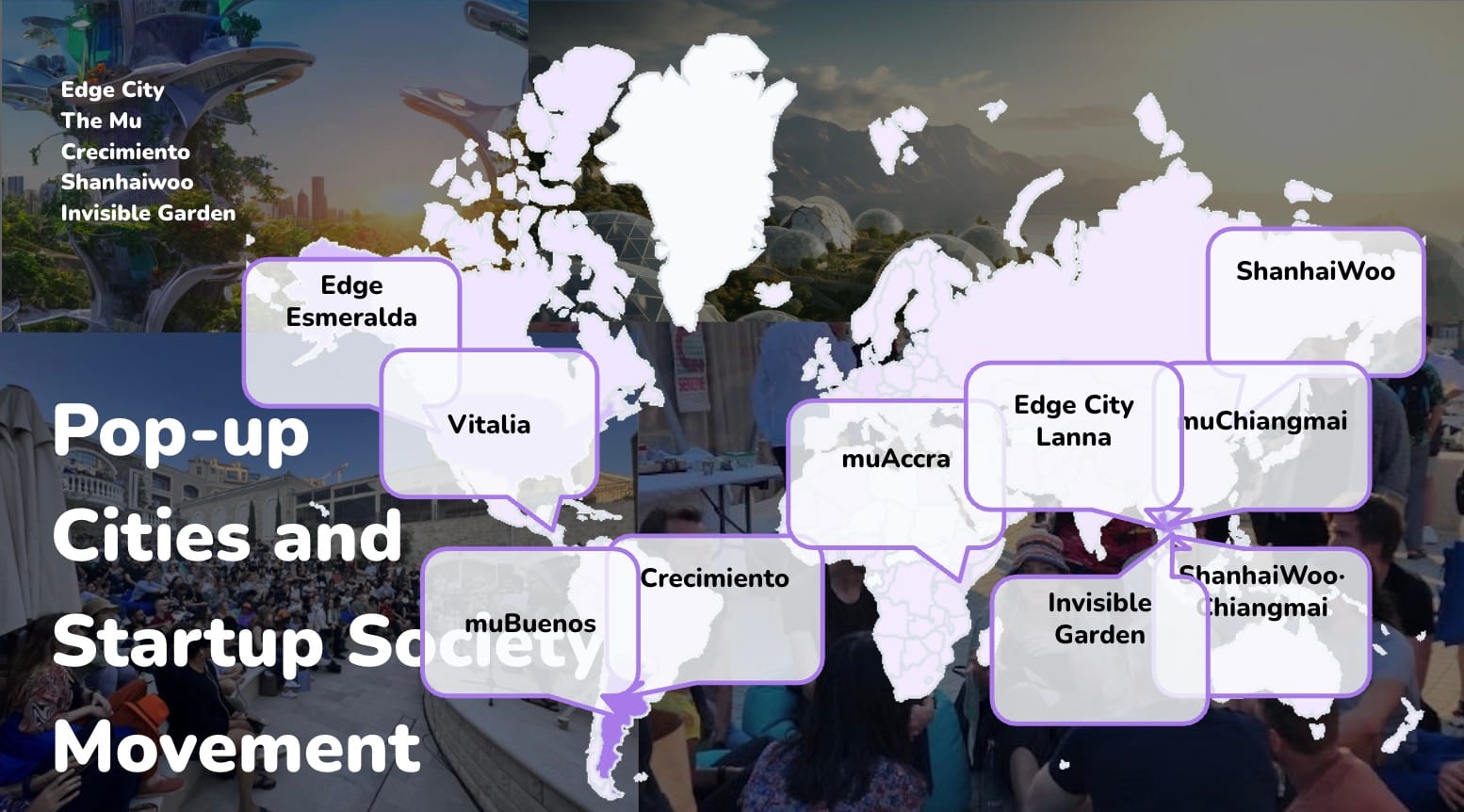
Social Layer 究竟做了什么?
What Exactly Has Social Layer Been Doing
Shiyu:我一直觉得 Social Layer 很适合三五六人的团体,通常也是社会人际关系的最小单位,包括家庭和亲密关系的应用,去记录小规模的协作实验。但我也担心做着做着 Social Layer 就消失了,你们最后被市场的裹挟劝退了,我想保存下来的这些数据也就没了。归根结底,最后存活下来的还是商业做的更成功的东西,似乎能被更多人使用和认可的大品牌,因为更方便,更有保障,存续的更久。标签化的交往,检索和浅人际也比深度交友更快速和轻松。
但这些小的很棒的、能够真正改变社交底层逻辑和价值的结构关系,改变人际标签化状态的工具,就是没有办法存留下来,这是很遗憾的。所以我们也可以来讲科幻故事,先做梦。生活在基于这样一种社交逻辑和人际关系框架的社会里会是什么样的?它会足够美好到让我们放弃现在的一切吗?
I've always felt that Social Layer is particularly suited for small groups of three to six people, which are often the smallest units of social relations, including families and intimate connections, to record small-scale collaboration experiments. But what I worry about is that one day Social Layer might just disappear — you might get forced to retreat by market pressures, and the data I want to preserve would vanish with it. In the end, the things that survive tend to be the more commercially successful ones — big brands that are more convenient, reliable, and long-lasting because they are widely adopted. Label-based interactions, searchability, and shallow connections are faster and easier than deep relationships.
But these small, wonderful tools that can fundamentally change the underlying logic and values of social interaction — tools that can deconstruct the labeling of human relations — often can't survive, and that's a real pity. So maybe we can tell sci-fi stories — dream first. What would it be like to live in a society based on this kind of social logic and relationship framework? Would it be beautiful enough to make us abandon everything we have now?
Eggy:Social layer 最后想实现的愿望,日常生活中也在时时刻刻发生。我们只是希望通过这个技术,或者一系列的软件服务和协议,让信任变得更便捷和可信。人和人之间的协作和交往需要信任。我对你有信任,可能首先是因为信任某个共友。但是这里面有很多不透明的阻碍,毕竟我们无法读心。但如果能把这些软性的关系网络记录下来,就可以根据想要去触达的对象去寻找对应的人,以及他的经历和人际关系。如果这些社交和关系网络全都有不可篡改记录,就会更高效和可信。没有这套技术它也一直在发生,只是那么显化。
What Social Layer ultimately hopes to achieve is something that's already happening in daily life. We just want to use this technology — or a series of software services and protocols — to make trust more convenient and reliable. Human collaboration and interaction rely on trust. I might trust you first because I trust a mutual friend. But within that are many opaque barriers — after all, we can't read minds. If we can record these soft relational networks, we can trace the person we want to reach through someone else's relationships and experiences. If these social and relational networks are immutably recorded, the entire process becomes more efficient and trustworthy. These things would happen anyway without the tech, but the tech can make them more visible.
Jiang:我觉得我们一直在努力,但我们在运营的策略上确实不是那么聪明有效和稳定。我们做的偏徽章,而另外一种形式是社区货币, Edge city 时 RadicalxChange 有运行过作为社区货币的实验,只要设置一定参数,在一定范围内去运行的话整个系统是可以跑起来的。在 Social layer 上发生的事不一定要发徽章,在日常生活里这种需求很隐蔽,但实际上又很常见。我搬到杭州来也有这个原因,最近一年下来我最大的发现就是自己其实还没太想清楚怎么做产品。有一些很棒的开发者朋友在良渚,我可以来看看别人怎么做产品。
最后,Social layer 的产品形态可能会变化,但需求是真实的需求。至于整个 Social Layer,我现在的想象是 Mastodon。这个开源项目 16 年开始的,到现在有九年历史了,整个生态很繁荣,虽然没有商业化,但是在做实实在在的事情,朝不同方向探索,也有一千多万用户。我会感觉到这个社区十年后还会在那,可能某个节点会消失,但这个网络不会消失。如果我们能把 Social Layer 做到这个样子,那就很棒了。有一个 good will,你也在做相关的事情,并且行动和理念一致,那人就不会感到分裂。当然不同的人在不同人生阶段会选择回报更高的或回报并不那么高的事情,这就因人而异了。
We've been trying hard, but we really haven't been that smart, effective, or stable in terms of operations strategy. What we've done has leaned toward badges, whereas another approach is community currency. During Edge City, RadicalxChange ran an experiment with community currency — and as long as the parameters are well set, the system can work within a defined range. Things that happen on Social Layer don't always need to involve badges. In daily life, this need is hidden, but it's actually quite common. Part of the reason I moved to Hangzhou was this — over the past year, I realized I still haven't fully figured out how to build a product. Some great developer friends are in Liangzhu, and I want to see how others approach product-building.
The product form may change, but the need is real. As for Social Layer as a whole, my current reference point is Mastodon. That open-source project started in 2016 — now it's been nine years. The ecosystem is thriving. Though it hasn't been commercialized, it's doing solid work, exploring different directions, and already has over 10 million users. I get the feeling that this community will still be there ten years from now. Maybe some nodes will vanish, but the network won't. If we can make Social Layer like that, it would be amazing. If you have goodwill, are working on relevant things, and your values and actions align, then you won't feel fragmented. Of course, people in different stages of life may choose things with different returns — that's natural.
Shiyu:从用户角度说,使用一个 App 就像是玩一场游戏。每场游戏都有开始上手熟悉的过程,有非常入迷的时刻,但是游戏总会结束,结束后是不是还想在这里继续下一场游戏,取决于它让我有多着迷。在社区里生活,参与项目也都是一样。如果社区生活和参与项目已经成为了人生的一部分,那肯定很难退出了。另一方面也会源源不断有新人加入这个游戏。但是游戏总归是要结束的,我觉得我们没有办法避开这个问题。
From a user's perspective, using an app is like playing a game. Every game has an onboarding phase, a moment of deep immersion — but it always ends. Whether I want to keep playing the next round depends on how much it captivated me. Living in a community, participating in projects — these are the same. If community life and involvement have become part of your life, it's hard to step away. On the other hand, new players will keep joining the game. But games inevitably end — I don't think we can avoid that question.
Jiang:我倒不觉得。在我现在能想象到的时间里,我不觉得维基百科会有倒闭的一天,我也不觉得 Internet Archive 会有关门的时候。因为它们都有真正的社区,当它遇到困难,会有人扶持它继续下去。
I don't quite agree. Within the timeframe I can currently imagine, I don't think Wikipedia will ever shut down. Nor will the Internet Archive. Because they have real communities behind them. When they encounter difficulties, someone will step up to help them keep going.
Shiyu:任何的事物都肯定会消亡。无论是时间的推移还是人的代际变化,需求永远是阶段性的。新的时代到来,新的工具产生,肯定会把原来那些需求给消解掉,然后诞生出来新的需求,比如 AI 陪伴,以前只出现在科幻作品里。但我感到现在距离《底特律:变人》里的仿生人或许也不太远了。
I believe everything will inevitably fade. Whether due to the passage of time or generational change, needs are always temporary. A new era arrives, new tools emerge, and they dissolve old needs while birthing new ones — like AI companionship. Once confined to science fiction, now it feels like we're not far from the androids in Detroit: Become Human.
935:Social Layer 有没有想往非 Web3 的社群去推广?我们都觉得 Social Layer 是很接地气,跟很多非 Web3 的社群需求非常贴切的应用,但过去好像一直主要是往 Web3 推广。
Has Social Layer considered expanding into non-Web3 communities? We think it's a very grounded tool that fits the needs of many non-Web3 communities, but it seems like it has mostly been promoted within Web3 so far.
Jiang:我最近有想做国内版,产品确实还是要解决真正的需求,盯着真正需要的人走,而不是 Web3 这个叙事,做产品需要打磨。
I've recently been considering a domestic version. A product needs to address real needs — it should follow the people who actually need it, not just chase the Web3 narrative. Building a product requires refinement.
935:非常期待。 我觉得最终的推广可能需要多维度的一起努力。一方面是你们在技术层面把这个应用变得可能,另一方面也需要整个社区在社区文化上有使用这种工具的意识。
Really looking forward to it. I think in the end, successful promotion requires multidimensional collaboration. On one hand, you're making it technically feasible; on the other, the community needs to cultivate an awareness of using such tools.
Shiyu:你们之前的开发节奏是比较需求导向的,现在还是这种状态吗?目前倾向于怎样的产品图谱呢?
Was your development process previously more demand-driven? Is that still the case now? What kind of product roadmap are you leaning toward at the moment?
Jiang:我们是在社区中开发,希望是用户进入 Social Layer,Social Layer也进入用户。所以还是会重视用户的需求。我们年初定了几个目标。第一个是去集成 Mastodon 的 ActivityPub 协议或者是 Blue sky 的 AT Protocol 来实现去中心化。第二是实现 ZK 技术的深度集成。还有一个是跟 AI 的集成,最近刚刚开发了 Social Layer 的 MCP server,可以用 AI Agent 来访问这些活动。最后一块,是增强管理后台的能力。我们服务于社区,应该关注一个社区到底怎么样运营。社区的运营需要去管理活动,事物,还有人。这套综合运营系统的需求一直都有,需要一个为社区做的 CRM。这部分目前我们还没有精力来做。
我最近在同 Edge 的团队聊,他们提到希望能在 Social Layer 上面实现他们那些被验证的管理流程。他们现在有两大块活动,一部分是他们安排的,另一部分则是用户自己组织的,他们想要消除两者之间的界限。自发组织的活动可以享受官方活动的支持,官方的活动也可以足够的民主。如果能把这部分做的很丝滑,大家整体的效率和体验都会提升很多,新的内容也可以得到涌现。这样会允许社区里面有更丰富的共创和灵活的内容。
We build within the community, and we hope that as users enter Social Layer, Social also enters them. So yes, we still care about user needs. At the start of this year, we set several goals. The first is to integrate either Mastodon's ActivityPub protocol or Blue Sky's AT Protocol to enable decentralization. The second is to deeply integrate ZK (zero-knowledge) technology. The third is integration with AI — we've just developed Social Layer's MCP server, which allows AI agents to access these activities. The final goal is to strengthen our admin backend. Since we serve communities, we should care about how communities operate. Community operations require managing activities, tasks, and people. There's always been a need for such a comprehensive operations system — essentially a CRM made for communities. But for now, we don't have the bandwidth to build this part.
Recently I've been talking with the Edge team, and they mentioned wanting to implement their proven management processes on Social Layer. Right now, their activities are divided into two types: those organized officially, and those initiated by users. They want to break down the boundary between the two — enabling self-organized events to receive official support, and allowing official events to become more democratic. If we can refine this layer well, everyone's efficiency and experience will greatly improve, and new content will continue to emerge. This would allow richer co-creation and more flexible content within communities.
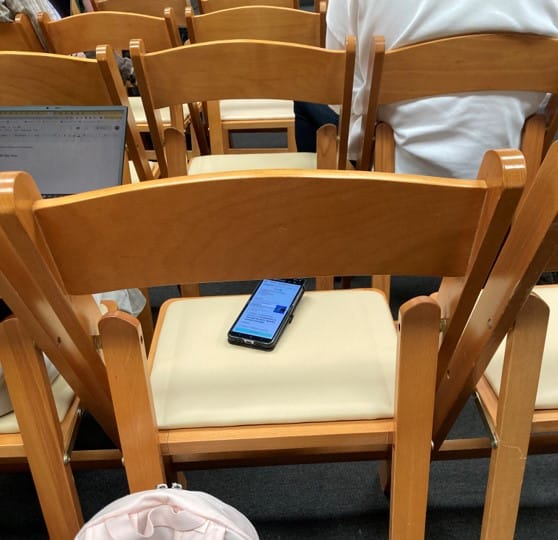
RxC 的社区货币实验
RxC's Community Currency Experiment
Shiyu:把 Social Layer 作为社区货币的实验具体是怎样的框架和执行?最终有没有运转起来?为了做这个实验,你们在产品上有哪些改进?
What was the framework and implementation like when Social Layer was used as a community currency experiment? Did it eventually function as intended? What product-level changes did you make for the experiment?
Jiang:这个实验是一个叫 RadicalxChange 的组织做的。每个人都把 20 美金放进同一个箱子,同时给你 100 积分,我们叫 Edge token,相当于 1 美金等于 5 个 Edge Token。然后你就可以用这些 Edge Token 在他们的 APP 上面进行兑换。因为它基于每个人真金白银的存款,所以是可以提取出来的。在积分流通的过程中某些行为需要抽成。比如说,把 Edges 发给一个没有在最初就投钱加入这个游戏的人,就需要多收一倍的钱作为 tax。退出也有 5% 的 Time tax。这个实验是希望大家使用这种社区货币作为日常的交换媒介,比如说跟别人一起打车,分摊一下钱;别人给你按摩肩膀,或者你觉得哪个演讲的内容特别好,也可以给他打赏。他也刻意没有用 Web3 的 ERC20,而是相对 low take 的方式开发了一个很简单的 APP。
作为社区的活动信息整合工具,大家打开 Social Layer 的频率是最多的。我们觉得这个实验很有趣,于是就在产品上开发了显示积分余额的功能。我们当时还想另一个功能,让大家能用 Edges 打赏那些比较好的活动。我们在社区中提供内容,他们负责经济的部分,希望社区的内容生产者和经济的循环系统能够结合起来。从效果来看,因为大家可以直接看到余额,也会更多的感知到这个游戏的存在,同时也能增强他们对 Social Layer 和 Edges 的使用率。
This experiment was run by an organization called RadicalxChange. Each participant put $20 into a common pool and received 100 points in return, which we called Edge Tokens—equivalent to 5 Edge Tokens per dollar. These tokens could then be used for exchanges within their app. Since the system was backed by real money deposited by each participant, the tokens were redeemable. Certain actions incurred a fee during the circulation of tokens. For example, transferring Edges to someone who hadn't contributed money at the beginning of the experiment would cost twice as much due to a tax. There was also a 5% "Time Tax" upon withdrawal. The goal of the experiment was to encourage people to use this community currency for everyday transactions—like splitting a taxi fare, thanking someone for a shoulder massage, or rewarding a particularly great talk. They intentionally avoided using Web3's ERC-20 standard, opting instead to build a very simple app with a low technical barrier.
As a tool for integrating community event information, Social Layer was already the app that people opened most frequently. We found this experiment fascinating and developed a feature to display token balances within the product. We also considered adding a function that would allow users to tip high-quality events using Edges. While we provided content within the community, they handled the economic part, hoping to bridge the gap between content creators and the community's economic system. From what we observed, the visible token balance helped people become more aware of the experiment's presence and increased both their use of Social Layer and their interaction with Edges.
Eggy:他们是想要做一套社区内的货币,来和社区外进行区别。他们当时也讨论了本国货币跟外汇的冲突,比如有一些国家的本国货币会一直贬值,大家就更愿意换成流通更广的外汇,换一个更硬的通货。这个机制的设计就是希望社区货币能在本地流通,要退出的话,就需要交一定的税,以此鼓励大家都使用本地的货币。
They wanted to create a currency used within the community, distinct from what's outside. They also discussed the tension between national currencies and foreign exchange—for instance, in countries where the local currency keeps depreciating, people prefer to convert it into stronger, more widely accepted foreign currencies. The system was designed to encourage local circulation of the community currency, with an exit tax discouraging people from cashing out, thereby incentivizing continued use of the local currency.
Jiang:有人会问为什么不用美元,那如果你用美元计价,跟美元绑定,他就设计成让你付出一些兑换成本。
Some people might ask, why not just use the U.S. dollar? Well, if you price everything in dollars and peg it to the dollar, then according to the system's logic, you should have to bear a conversion cost.
Shiyu:功能上来说有点像网研所的 Coop,类似一个 Social Token。你们觉得 RadicalxChange 做的这个实验更像哪一种?是流通的货币,还是说更像是一个荣誉性的徽章?
Functionally, this mechanism is a bit like the Coop from NYSRI—a kind of Social Token. In your view, was the RadicalxChange experiment more like a circulating currency, or closer to an honorary badge?
Eggy:最开始 Larri 发起过替代性货币,当时想法也是做一个同质化的 token,后来才发展成非同质的 badge,而不是用可计量的方式。如果直接用现在流通的价值去标定,至少对我来说,在社区里面有一些人的贡献是超越这个价值的,这部分要如何表示?也包括情感因素和增加更多价值的部分。给我某个社区的纪念币是不一样的,你给我 20 个纪念币,我会感觉在这个社群里面有特殊的价值,但是你如果给我二十刀,我会觉得我做的这个事情好像就只值二十刀,和外界对齐的话,能去对比的东西就变得更多了。在社群内就没那么多。
At first, Larri initiated an alternative currency. The initial idea was to create a fungible token, but it later evolved into non-fungible badges rather than something measurable. If you directly peg it to current circulating value, at least for me, some people's contributions in the community exceed that value. How to represent this? It also includes emotional factors and added value. A community commemorative token is different; if you give me 20 tokens, I feel a special value in this community, but if you give me twenty dollars, I feel what I did is only worth twenty dollars. Aligning with the outside world allows more comparisons, but within the community, there isn't as much.
Shiyu:它像是生产了另一种价值的对标系统。不是跟社会现有的主流价值评判体系去接轨,而是另起炉灶,发明一套新的东西出来。
It's like producing another value benchmark system—not aligning with the existing mainstream social value judgments, but inventing a new one from scratch.
Eggy:Social Layer 最开始也是想做这个事情,让世界重新有一个价值标的。但 RadicalxChange 的设计有趣在,最开始还是有一个让你跟法币有比值关系。但是进入后再要退出,就会有一个税费。如果你一直玩这个游戏,Edges 在这里流通的时候,它的价值就不太容易再换算回美元了。后来他们在清迈好像也有做这个实验。
Social Layer initially aimed to do this as well—to let the world have a new value benchmark. But what's interesting about RadicalxChange's design is that it initially pegged the token to fiat currency, but there's a tax when you exit. If you keep playing this game and Edges circulate here, their value becomes hard to convert back to dollars. They later apparently ran this experiment in Chiang Mai as well.
Shiyu:你们觉得这个实验的体感怎么样?为什么实验本身不太容易成功?
How do you feel about this experiment? Why is it hard for the experiment itself to succeed?
Eggy:我们当时有和发起这个实验的伙伴 Matt 聊。他们希望设计一些仪式,包括一开始存入钱的过程,后来也想要组织例会作为类似 community 的讨论,关于我们如何管理这笔钱,治理和投票方面的规则之类的。他希望基于这套东西形成一个类似央行的实体,并且一步一步接着讨论。要完成这件事,他需要大家要么主动地参与,要么就得有一个 committee,需要定期去运营。我们当时在 706 推行的时候也遇到这个问题。我们希望大家自发地发徽章,但它的价值有没有很高的认可度。在 706 寻找类似 committee,或者找能承担这样的行为的人来推广,又违背我们产品本身想要的价值。大家一开始并没有很认可这样一套价值体系,他又希望大家能自己来治理,而不是由他们中心化的发起什么。
We talked with Matt, the partner who initiated the experiment. They hoped to design some rituals, including the initial money deposit, and also organize regular meetings like community discussions on managing the money, governance, and voting rules. He wanted to create a central-bank-like entity step by step. But to do this, everyone needed to actively participate, or there needed to be a committee for regular operation. We faced this issue when promoting it in 706. We wanted people to spontaneously issue badges, but was their value highly recognized? Finding a committee or promoters at 706 conflicted with the product's desired values. At first, people didn't really accept this value system, and he hoped for self-governance rather than centralized initiation.
Shiyu:对一个社群来说,要形成去中心化式的治理需要时间,而且需要共识在先。你们觉得在 Edge city 这样的共识是天然存在的吗?
For a community, forming decentralized governance requires time and prior consensus. Do you think such consensus naturally exists in Edge City?
Jiang:Edge City 创建了一个 high trust environment,你会愿意把 20 美刀放在信封里,由这个陌生人保管。但是,这个经济模型真正持续流通是需要运营的,要有足够多的服务,或者消费的动力。除了信任之外还需要一些别的。
Edge City has created a high trust environment—you'd be willing to put 20 dollars in an envelope and hand it to a stranger for safekeeping. But for the economic model to keep circulating, it requires operation and enough services or consumption incentives. Beyond trust, other factors are needed.
Eggy:他们当时组织这个实验,也会邀请 Edge City 官方的代表人做背书,以此吸引更多人参与。很多这种强调去中心自组织的类型社区里,要发起这样的实验,也需要背书。同样的设计在 NCC 实行的比较好。虽然他们不是和法币绑定,而是通过发起活动来赚取;你可以规定参与自己的活动需要多少张“饭票”,这一套他们好像运行的还可以。但是这个系统和外界的经济体系好像还没有对接起来,是相对独立的价值体系。最近我去昆山的时候,知道他们现在可以拿“饭票”来换一些小小的,当地制作的工艺品。NCC 也是运营了很长一段时间,才有这样的效果。
When running the experiment, they invited Edge City's official representatives to endorse it, attracting more participants. Many communities emphasizing decentralized self-organization also need such endorsement to start these experiments. A similar design works well in NCC. Although they aren't pegged to fiat currency, people earn “meal tickets” by organizing events. You can require a certain number of meal tickets to join events, and this system seems to work well. But this system hasn't yet connected to the external economy; it's a relatively independent value system. Recently, I went to Kunshan and learned they can now exchange meal tickets for small local crafts. NCC operated for a long time before reaching this effect.
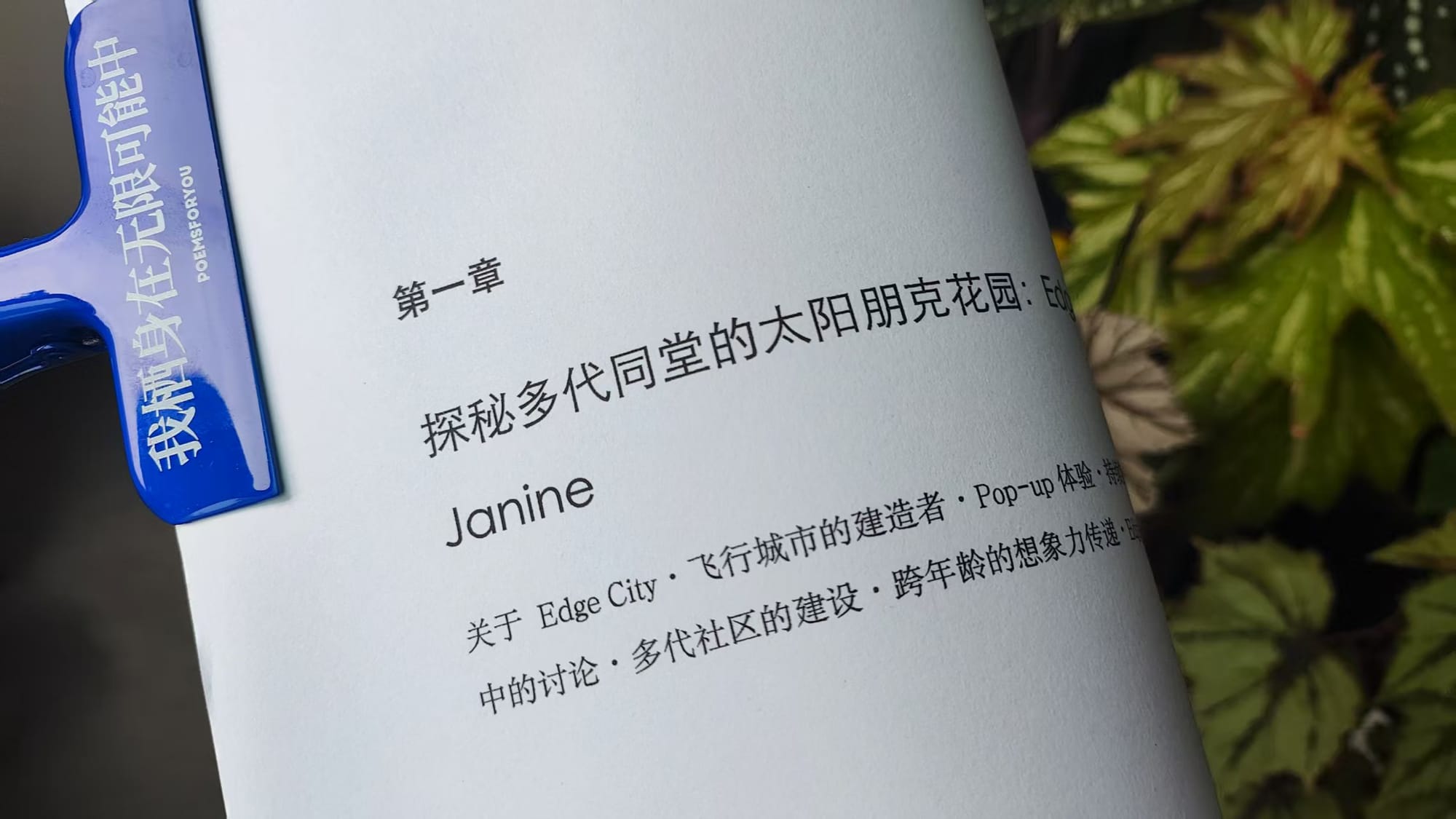
Pop-up city 的访谈
Interviews Around the Pop-up City
935:你们在 Edge Esmeralda 做的一系列采访,最早是因为什么样的契机开始的?过程中有没有哪次对你们来说印象最深的,或有最大影响的?
What was the initial trigger for the series of interviews you conducted at Edge Esmeralda? Was there any interview that left the deepest impression or had the greatest impact on you?
Eggy:契机就是 Jiang 说我们做些采访吧 (笑)。但我们也确实觉得做这个挺有意思的。Jiang 说可以采访一下大家为什么参与进来,我也想问大家为什么会做现在手上的那些项目。当时在 Zupass 有个叫 Richard 的华裔小哥跟我讲了很多,关于为什么开始做 Zupass。这种讨论让我突然发现每个进入到这里的人都蛮有意思的。跟我们现在讨论为什么做 Social Layer,关注社区一样,发现有很多不一样的想法。在 Edge 的时候虽然大家对我们的产品也有批评,一些细节让他们觉得用起来不是很舒服,但我们已经是 Web3 产品里体验比较好的了。当然如果按照 Web2 的标准来可能还不那么丝滑。
我印象最深刻的是和 Rob 访谈。当晚我们刚从 Protocol Lab 的胡安的 Airbnb 回来,他在那里给我们的产品做了 2 个小时的 UXUI 体验优化教学,表示愿意给我们一些支持。我和 Jiang 还有 Rob 三个人沿着那条自行车道一起走回来,当时我还推着自行车,抬头看天上群星闪烁。Rob 在路上给我们讲了他被之前黑手党拦住要洗钱的故事。他很早就接触以太坊,跟 Vitalik 也很早就认识了。他中间也一度离开了 Crypto,后来因为 pop-up city 又回来。我们也聊到目前这个行业令人生厌,但在 Crypto 认识的一些人都还挺不错的。
The trigger was Jiang saying, "Let's do some interviews" (laughs). But we really found it quite interesting. Jiang suggested interviewing people about why they got involved, and I also wanted to ask why people are working on the projects they have now. At that time, at Zupass, a Chinese-American guy named Richard told me a lot about why he started Zupass. These discussions made me realize everyone who comes here is quite interesting. Just like our current discussions about Social Layer and community focus, there are many different ideas. Although at Edge some people criticized our product, saying some details were uncomfortable to use, ours was already one of the better experiences among Web3 products. Of course, by Web2 standards it might not be smooth enough.
What impressed me most was the interview with Rob. That night we just came back from Protocol Lab's Juan's Airbnb, where he gave us two hours of UX/UI optimization training for our product and said he was willing to support us. The three of us — Jiang, Rob, and I — were walking back along the bike path; I was still pushing my bike and looked up at the starry sky. Rob told us about how he was stopped by the mafia to do money laundering. He got involved with Ethereum very early and knew Vitalik early on. He had left crypto for a while but came back because of pop-up city. We also talked about how the industry is frustrating now, but the people he met in crypto are pretty decent.
935:目前为止我们大多数都是待在国内的社群,接触国内的应用,你们采访时有接触到那边的圈子或社群是什么状态吗?他们做的产品跟我们做的产品,从设计思路或是类型上会有什么差异吗?
So far, most of us have been involved in domestic communities and applications. During your interviews, did you have contact with foreign circles or communities? How do their products compare with ours in terms of design ideas or types?
Eggy:我之前关注过一个采访节目,讨论中国和外国的 APP 在 UXUI 设计上的区别。节目说中国这边喜欢在一个 APP 里嵌入很多功能,首页总有密密麻麻的 icon,支付宝,淘宝之类,还有很多产品都会有这种感觉。Uber 之类的 APP 首页就很简洁,每个 APP 里只有很少的 button 去实现一两个小功能。比如 Uber 界面里除了坐车和点餐以外就没有太多东西了,而且两个功能切分得很开,不会让你觉得里面什么都有。整体设计语言也不会用各种花里胡哨的颜色或者广告的视觉冲击。
他们评价说我们的设计思路可能是因为信息获取能力很强,所以喜欢信息量大的呈现,从很多选择里面挑一个的体验,一下子就能抓住用户。Social Layer 的首页也经常被国外朋友说不需要那么多东西。举个例子,我们会给每个 Pop-up city 的 Event 页面上呈现这个社区的成员列表。但是在 Edge 的时候他们就会觉得首页就聚焦呈现各种各样的社区活动就好,不要同时呈现社区成员列表。
社群方面我个人目前接触的国外都是比较技术向的,特别 Edge 给人的感觉蛮精英的,基本都是大公司高管,投资机构的,斯坦福或各个学校的优秀学生,还有一些自己在创业,用 AI 生成芯片设计的高中生之类,是美国中产以上精英教育出来的感觉。在国内接触的社区包容性更强一点,有各种各样的人。但也可能因为 Edge 门票太贵,有些多样性被筛选掉了。不像国内我接触到的一些社区就算发个只是 20 块钱的活动,人家都会觉得要钱就不来了。
但对于像 Edge city 的组织来说,他们一定要 cover 掉运营的成本。国内很多社区的思路是先把社群做起来,愿意一开始不 cover 成本,也有很多社群从始至终就没有 cover 过,这种用爱发电的方式很有意义,也有人一直坚持去做,这是很难得的。但这种对比可能不太合适,毕竟国外有些很多社群我们还没有接触到。当时在 edge 有一个 side event 是带我们去参观实践朴门农业的农场,在那里接触的农场主给我的感觉更像国内接触到的这些社群,包容性很强,为一些很理想的东西投入很多。
I previously followed an interview program discussing differences between Chinese and foreign apps in UX/UI design. The program said that Chinese apps tend to embed many functions in one app, with dense icons on the homepage, like Alipay or Taobao, and many products feel this way. Apps like Uber have very simple homepages with only a few buttons for one or two functions — ride-hailing and food delivery are separated so you don't feel like the app has everything. The overall design language also avoids flashy colors or aggressive advertising visuals.
The explanation was that Chinese users have strong information acquisition ability, so they like a large amount of information presented, letting them pick from many options quickly. Social Layer's homepage is often told by foreign friends to not include so many things. For example, on Pop-up city event pages, we show community member lists, but at Edge, people think the homepage should just focus on various community events, without simultaneously showing member lists.
Regarding communities, the foreign ones I know are more technical. Edge feels quite elite — mostly executives of large companies, investment institutions, excellent students from Stanford and other schools, and some entrepreneurs, including high school students designing AI-generated chips. They generally have middle-to-upper class elite education backgrounds in the U.S. Domestic communities are more inclusive with various people, but Edge's expensive tickets may screen out some diversity. Unlike domestic communities where people might skip a 20-yuan paid event because it costs money, Edge's organizations must cover operational costs.
Many domestic communities first build the community and are willing not to cover costs initially, operating with passion, and some persist — which is commendable. But this comparison may not be fully fair, since we have not touched many foreign communities. At Edge, a side event took us to visit a permaculture farm, and the farmers there reminded me of domestic inclusive communities, strongly investing in ideals.
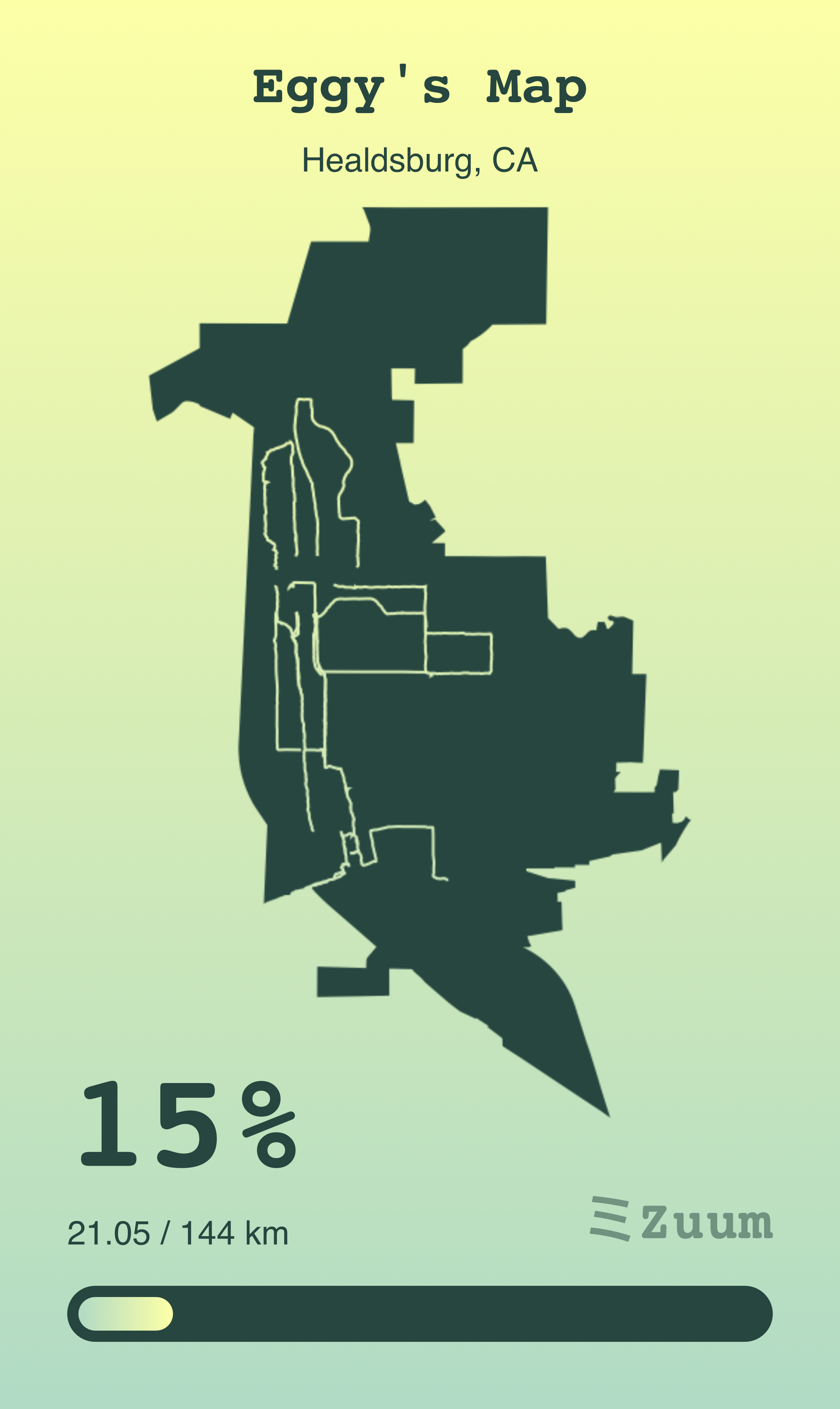
935:Jiang 跟国外的社群接触下来,有觉得和在国内接触到的圈子有不一样吗?你接触社群的时间跨度很长,种类上面也比较多,技术社群和非技术社群都有。
Jiang, after engaging with foreign communities, do you find them different from the domestic circles? You have long experience across various types of communities, both technical and non-technical.
Jiang:很难对比,因为不是同层次,也不是同类型。Edge 这种社区跟 706 和我以前去的 Ruby 社区就很不同。在欧美体系里,人和人之间的界限确实很分明,公共和私人间的界限,或说商业的界限也会相对拎得清,没那么多矛盾冲突。国内的公共社区经常有些人发广告,我们可以解释说因为做商业的人总是想利用尽可能多的资源来做生意,同时也说明他们没有那种“这个空间不是随便可以商业化”的意识。国外大家会有一些基本的行为准则和共识,国内就更模糊。当然比较好的社区会慢慢建立共识,和地域无关。
包括软件的付费也是一样,你会发现在国内很难收钱。Edge city 对 Social Layer 来说是最好的使用者,不管出席活动还是报名,他们每个人都觉得我一定要点了报名按钮才能来。但在国内社区大家会觉得既然我已经知道这个时间地点,那来了就可以了,不需要在 App 上面申请,不用尊重主办者的边界。
It's hard to compare because they are not at the same level or of the same type. Communities like Edge are very different from 706 and the Ruby community I used to participate in. In Western systems, the boundaries between people are quite clear—between public and private, or business boundaries are more distinctly recognized, so there are fewer conflicts. In domestic public communities, some people often post advertisements. We can explain this as businesspeople trying to leverage as many resources as possible for their ventures, but it also shows a lack of awareness that "this space is not for casual commercialization." Abroad, people tend to have basic codes of conduct and consensus, whereas domestically this is more ambiguous. Of course, better communities gradually build consensus regardless of location.
The same applies to software payments—you'll find it difficult to collect money domestically. Edge City is the best user of Social Layer; whether attending or signing up for events, everyone feels they must click the registration button to participate. But in domestic communities, people feel that since they already know the time and place, they can just show up without applying on the app or respecting the organizer's boundaries.
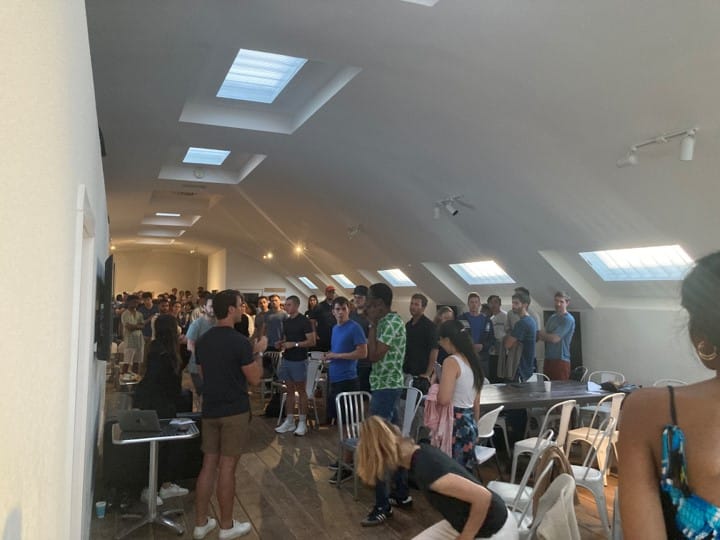
和我们一起老去的社区
Communities That Grow Old With Us
935:Edge City 提出了多代同堂的设想,Eggy 好像也是参加了 Edge 之后,在生育观念上有很大的改变?
Edge City proposed the idea of multi-generational living. It seems Eggy also experienced a significant change in views on having children after joining Edge?
Eggy:我猜到你们要问这个问题。Edge city 说可以带小朋友去,去年我不太理解,觉得这很有风险。特别是我们交付产品的时候他们提出如果有人带家属来,得让他们能在同一个账号上进行核验复数的门票。他们希望产品可以容纳这种需求。这是有点超出我们之前接触过的社区需求的。我生了小孩后发现这个需求确实会有。比如太小的小孩用不了 App,要参加活动就需要你有单独的方式帮他报名。当时 Edge City 也有关于 Co-parenting 的讨论和活动,经常有家长带来的小朋友在旁边,也有一些活动是专门给小朋友参与的。还有小朋友自己提出来想要做一个活动,只要去跟主要的筹办人协调就可以。我觉得这些都很好玩。
去 Edge City 之前我跟老公讨论过生小孩。本来觉得这种事情只能二选一,有家庭之后就不可能一直醉心那些改变社会的事情。但到了 Edge Esmeralda 发现他们可以拖家带口来参加社区和前沿讨论的。我就想说不定我们也可以试试。但当时也没有想到这么深,只是觉得这种类型的社区还是很有希望和可能性的。当时还有湾区的一个社区来分享他们 co-parenting 和共居的经验,有下一代之后他们还是住在同一个社区里,他们的语境也比较不一样,他们会购买一整片地产,每个家庭分别住在这片土地上的自己的屋子里。我觉得这是蛮理想中生活的样子,既可以跟朋友们和社区小伙伴住在一起,又可以有自己的家庭。
I guessed you'd ask this question. Edge City said it's okay to bring children, but last year I didn't quite understand and thought it was risky. Especially when delivering our product, they requested that if someone brings family members, the system should allow multiple tickets to be verified under the same account. They want the product to accommodate such needs. This is beyond the demands we've seen in other communities. After having a child, I realized this demand really exists. For example, very young children can't use the app, so if they want to participate in events, you need a separate way to register for them. Edge City also has discussions and activities around co-parenting. Parents often bring their kids along, and some events are specifically designed for children. Sometimes kids themselves propose to hold an event and just need to coordinate with the main organizers. I think these are very interesting.
Before going to Edge City, I discussed having kids with my husband. I originally thought it was a binary choice—once you have a family, you can no longer be fully devoted to social change. But at Edge Esmeralda, I saw they could bring their families and still participate in community and frontier discussions. I thought maybe we could try that too. At the time, I didn't think too deeply but felt this type of community had hope and potential. There was also a community from the Bay Area sharing their experiences with co-parenting and co-living. After having the next generation, they still live in the same community, but their context is different—they buy a whole piece of land, and each family lives in their own house on it. I think this is quite an ideal lifestyle, where you can live with friends and community members while having your own family.
935:我能感觉到最近一两年社区的一些变化。可能因为这个圈子最早的起源是密码学和线上技术社区,大家在习惯上也就天然带着一些加密属性,在线上偏重匿名,即使线下交流也都是一种比较去个人身份背景的状态。我能感觉到这两年大家越来越脱虚入实,逐渐开始尝试把更多个人和私生活那部分信息带入到社区里。
I can sense some changes in the community in the past year or two. Maybe because this circle originally came from cryptography and online tech communities, people have naturally carried some encryption attributes, focusing on anonymity online, and even offline interactions tend to downplay personal identity or background. I feel that in the last two years, people have been moving from virtual to real, gradually trying to bring more personal and private life information into the community.
Eggy:整个 Pop-up City 运动是希望技术能真正融入生活,想创造更贴近生活的场景,虽说最开始的实验可能只能一两个月,长久来说也希望大家都能在这种生活里探讨加密技术,或从生活出发看待加密技术和各种治理方式的可行性。但目前其实都在探索的阶段,还看不出最后会走向何方。真正的愿景要落地还是要基于日常生活的实践,得融于很真实的场景里,而不是说先在某种幻想里面。把社区作为方法就是因为社区里面有日常生活的世界,才有可能在这个世界里,真正地把一些浮于空中的东西落地。这样的实践才会带来真的影响力。
The whole Pop-up City movement hopes technology can truly integrate into life and wants to create scenarios closer to real life. Although the initial experiments may last only a month or two, the long-term hope is that people can discuss encryption technology within this kind of life, or look at the feasibility of encryption and governance methods from a life-based perspective. But currently, it's all still exploratory, and it's unclear where it will ultimately go. The real vision needs to be grounded in daily life practices, embedded in very real scenarios—not starting from some fantasy. Using community as a method is because communities contain everyday life worlds, making it possible to truly bring some abstract ideas down to earth within this world. This kind of practice will generate real impact.
935:现在社区里大家有很大的对于要平衡现实经济,可持续为爱发电的需求。这当然是社群想长期良性发展必须的方向,但我同时也会在想,有的时候这会不会主要是我们这些社区老人们的需求?对于一些社区新人们来说,特别是那些可能才刚上大学的萌新们来说,他们的首要目标并不一定是马上找到一个平衡现实和理想的途径,在最开始阶段他们可能就是希望可以不考虑现实重力去践行一个非常理想化的想法。他们需要有这样一个天真浪漫化试错的阶段去成长,可能等他们毕业了,到工作岗位了,或是到更贴近 20 岁后半段人生的时候,他们才会更多地开始考虑我们现在考虑的事情。
There is a strong demand now to balance real-world economy with sustainable love-driven (non-commercial) efforts in communities. This is certainly a necessary direction for communities to develop healthily in the long run, but I also wonder if sometimes this is mainly a need of us older community members? For some new members, especially those just starting university, their primary goal may not be to immediately find a balance between reality and ideals. At the very beginning, they might just want to practice a very idealistic idea without worrying about the gravity of reality. They need such a naive and romantic trial-and-error phase to grow. Maybe when they graduate, enter the workforce, or reach their late 20s, they will start thinking more about what we now consider.
Shiyu:我在 706 的朋友 Strayn 之前也说,现在已经不是 706 青年空间,而是 706 中年空间了。社区里还在做事的那群人好像都一起老了。前几天有个朋友说,过去的程序员西装革履打领带上班,现在都穿 T-shirt。我第一反应觉得不是因为程序员的生活方式改变了,而是喜欢穿 T 恤上班的人变成大多数了。现在喜欢穿 T 恤那群人好像也开始老了,而最新那一代,对于程序员应该怎样生活,社区应该以什么样方式来组织,肯定又有更新的看法。
A friend of mine at 706, Strayn, also said before that it's no longer the 706 Youth Space but the 706 Middle-Aged Space. The people still active in the community all seem to have grown older together. A few days ago, a friend mentioned that programmers used to wear suits and ties to work, but now they mostly wear T-shirts. My first thought was not that the programmers' lifestyle changed, but that those who like wearing T-shirts have become the majority. Now those who like wearing T-shirts seem to be getting older too, and the newest generation must have fresh ideas about how programmers should live and how the community should be organized.
Jiang:这个问题是最大的。我以前玩的技术社区现在都没什么年轻人,连我这种都算年轻。其实应该多做年轻人友好的 program,多做 Onboarding。如果没有年轻人,那再过几年这个社区的氛围就不会很好。我觉得比较好的社区未来还是应该有老人,有小孩,有新人,代际的多元性是很重要的。不然这个社区就完蛋了。
This is the biggest issue. The tech communities I used to be involved in hardly have any young people left—someone like me is still considered young. Actually, more youth-friendly programs and onboarding processes should be developed. Without young people, in a few years, the community atmosphere won't be good. I think a healthy community in the future should have elders, children, and newcomers. Intergenerational diversity is very important. Otherwise, the community is doomed.
Shiyu:下一个阶段你们准备把注意力放在什么上面,会有一个大概的方向和想法吗?
What will you focus on in the next stage? Do you have a general direction or idea?
Eggy:为什么你讲的跟我财务自由了一样?我并没有(笑)。最近因为生小孩包括写博士论文,社区参与其实也没有那么多,再加上有点信仰崩塌。这个世界上的确有群人在做特别有意思的事,我也很愿意支持大家。但要说我自己投入多少精力的话,现在我好像没有以前那么强烈地觉得,这个世界一定要由“我们”来做些什么才会更好,我到了一个这样的阶段。但是如果有什么事情是我能帮上忙的,我还是很愿意做的,就不一定这件事非得是自己或者自己的团队来主导。现在更加释然一些。
我觉得还是蛮骄傲的,至少在一个很小的一个圈子里大家很认同。这已经是很很厉害的成就了。虽然没有说影响几万人,但至少影响了这世界上在行动的几千人。他们后面能产生的影响,和继续往前走的可能性也很大。因为最近在坐月子,会想到去年的这个时候我相信自己可以改变世界的那种状态。最近就平和了很多。虽然说我还是相信我能做一些事情,但没有特别 ambitious。
之前在课题里有提到怎么把研究和实践去更好结合起来,也想针对这样的议题做研究和实践。先维持研究的身份,再以普罗托邦或者是其他的一些社群,可能也参与更多 Uncommons 的事情,维持实践的这部分和对真实社会的接触。纯做学术的那种状态会让我很压抑,需要有点不务正业。
Why does what you say sound like I've already achieved financial freedom? I haven't (laughs). Recently, because of having a baby and writing my PhD thesis, I haven't been very involved in the community, plus I've experienced a bit of a faith collapse. There really are some people in the world doing very interesting things, and I'm happy to support them. But as for how much energy I personally invest, I don't feel as strongly as before that the world must be changed by us. I'm at a stage like this. But if there's anything I can help with, I'm still willing. Now I'm more at peace.
I still feel quite proud, at least in a very small circle where everyone recognizes each other. That's already a great achievement. Although it hasn't influenced tens of thousands, it has affected a few thousand people who are active in this world. The impact they may produce and the possibility of continuing forward is also significant. Recently, during my postpartum confinement, I thought about how a year ago I believed I could change the world. Now I'm much calmer. Although I still believe I can do some things, I'm not especially ambitious.
I've also mentioned in my research how to better combine study and practice and want to research and practice on such topics. I'll maintain my researcher identity while possibly engaging more with proto-communities or other groups like Uncommons, sustaining the practice side and contact with real society. Purely academic work would make me feel very constrained; I need some diversion.
Jiang:我今年想专注做一些事情。在大的趋势里面有一个未来的社会危机,以前是关于权力的集中化的,现在真正的危机则是人类世界的一个大的、快速的转变,在 AI 时代人类面临加速主义和主体性的危机,危机的预言在另一个领域成真了。我在关注这个真正的危机和真正的创新在哪里。和那个去开船的朋友一样,看清楚一些事情之后发现有些东西确实不需要,所以现在活一天是一天,每个时刻都更活在当下。我以前可能也是想活在当下,但是我选错了那个当下。
I want to focus on some things. There is a major social crisis in the big picture—not just the previous problem of power centralization, but now a big and rapid transformation of human society. In the AI era, humanity faces accelerationism and a crisis of subjectivity, and the predicted crisis has come true in another field. I'm paying attention to where the real crisis and real innovation are. Like my friend who went sailing, after seeing clearly, I realized some things aren't needed. So now I live day by day, more in the present moment. I might have wanted to live in the present before, but I chose the wrong “present.”
Shiyu:为什么会觉得选错了那个当下?
Why do you think you chose the wrong present?
Jiang:也不能说是选错。我想到石黑一雄《被掩埋的巨人》里的记忆迷雾,在加密圈子里呆的时间久了,发现本来是一个很好的梦想,出发点是好的,但是过程中被叙事裹挟太多了,变了样。那本小说里面的记忆迷雾,让整个英格兰的人都失忆了。在 Web3 有一个叙事迷雾,让所有人都变得不是那么理性,把一些真实的东西掩盖了。我觉得现阶段我就是看到了那条龙在吐雾,发现在岛上因为叙事迷雾大家都看不清方向。
Not exactly wrong. It reminded me of Kazuo Ishiguro's The Buried Giant and its memory fog. Having spent time in the crypto circle, I realize it was originally a good dream with good intentions, but the narrative hijacked it too much and it changed. In that novel, the memory fog causes all of England to forget. In Web3, there's a narrative fog making everyone less rational, obscuring some real things. At this stage, I see that dragon breathing fog; on the island, because of the narrative fog, no one can see the direction clearly.
935:就最近国内加密社区里偏理想和人文的圈子来说,感觉确实是大家挺信心低谷的一段时间,而且这种低谷不单只是周期性的,这次可能是真正的低谷。越来越多的人开始转向其他事情。当然这可能是好的转变,不一定是坏事,大家都开始追求更实际的,回到真实生活的东西。
于是我在想,假如类似刚才提到的叙事迷雾的问题一直看不到比较实质性好转的话,大家的注意力可能会持续放在其他更现实,或相对来说更重要的事情上。那以后可能我们围绕这个技术轰轰烈烈的想法和愿景,做的那些事,慢慢就从我们生活里面淡出了。以至于多年之后我们回顾的时候,才恍然发现这个曾经占据了我们很多生活和想法的事情居然不知不觉中淡去了许久。一切都像是一个做了几年的技术大梦,你们觉得会有这种情况出现吗?
In the recent idealistic and humanities-oriented crypto communities in China, people really seem to be in a confidence low point. And this isn't just cyclical—this time it might be a true low. More and more people are turning to other things. This might be a good change, not necessarily bad, as everyone starts seeking more practical, real-life things.
So I wonder, if the narrative fog issue doesn't improve substantially, people's attention may continue to shift to other, more realistic or relatively more important matters. Then in the future, the grand ideas and visions around this technology might slowly fade out of our lives. Years later, when we look back, we may suddenly realize that what once occupied much of our lives and thoughts has quietly disappeared. It'll feel like a technological dream that lasted a few years. Do you think such a thing might happen?
Jiang:我觉得是那种此情可待成追忆,只是当时已惘然的感觉。毕竟努力过,学到的东西和建立的关系形成的这种意识,还是会在你心里面回荡。就我的心态和经历过的那些浪潮和运动而言是这样。很多 60 年代的嬉皮士也一样,也不能一直嬉皮下去,大家还是该上班上班,该上课上课。但你还是发现很多东西给那代人留下了挺深的影响。在那个高歌猛进的年代,就是有很多好玩的创造性的东西出现,也有很多留不下来的、站不住脚的东西。好的东西还是会产生。我没有那么悲观,历史上有很多很好的例子,但取决于你在乎的是什么?是最后一定要成功,经济回报,还是别的什么?很多人可能稀里糊涂就财富自由了,但从另一种角度的叙事上,可能他也没有获得很大的价值。
I think it will be that kind of bittersweet “what might have been” feeling—looking back with some regret. After all, we tried, and the knowledge and relationships built form a consciousness that echoes in your heart. From my mindset and the waves and movements I've experienced, it's like that. Many 1960s hippies were the same—they couldn't hippie forever; people had to work and attend classes. But many things left a deep impact on that generation. In that energetic era, many creative and fun things appeared, but also many things didn't last or hold up. The good things do come about. I'm not so pessimistic. History has many good examples, but it depends on what you care about—whether ultimate success, economic returns, or something else. Many people might accidentally achieve financial freedom, but from another narrative angle, maybe they didn't gain much value.
935:我挺期待多年后如果有机会的话,我们几个人再聚在一起,可能还能继续一起聊聊和回顾这些事情。
Yeah, I quite look forward to the day when, years later, if possible, a few of us can gather again and continue chatting and reviewing these things.
Shiyu:到时候大家人手一本《加密飞行》,看看自己当年说了什么(笑)。
Then everyone will have a copy of Crypto Flight in hand, looking at what they said back then (laughs).
Jiang:那我也问你们,你们参与到这些社区里面是追求什么呢?
Then I'll ask you all—what are you pursuing by participating in these communities?
Shiyu:我也是一个观察者。在大概知道它是什么之后,我对 crypto 本身就没兴趣了。我更有兴趣的是处在这个世界里面的大家感兴趣什么?你们为什么参与?为什么大家对这件事情看起来相信又看起来不信?对于这些东西的好奇就构成了我在这里持续玩耍的核心。
我也认为人比这些技术的东西更重要,通过我们之间的连接所触碰到的东西是真实的。但历史会把所有的东西都淘洗掉。放到千年万年起步的人类史上面,我们现在接触的这些东西,像 Crypto,不过只是几十年而已。可能人类史上早就有跟它非常类似的东西发生过,只是现在用这种面貌显现出来而已。再过百年之后又以另一个方式显现出来。没有任何东西是独特的,我也不觉得我们现在的圈子是人类史上从来没有出现过的。
Actually, I'm also an observer. After roughly understanding what crypto is, I'm not interested in crypto itself. What interests me more is what everyone in this world is curious about—why you participate, why people seem both to believe and not believe in it. That curiosity is the core reason I keep engaging here.
I also think people are more important than technology; what we touch through our connections is real. But history will wash everything away. Considering the human story over thousands of years, what we now engage with—crypto—is only a few decades old. Vaccines have only existed for about 220 years. These things are still very young. Similar things probably happened before in human history, just appearing in this form now. A hundred years from now, they will show up in another way. Nothing is unique, and I don't think our current circle is unprecedented in human history.
935:对我来说的话,其实是也有两层兴趣,这两层兴趣是递进的关系。比较浅的那层是对这套技术解法的好奇。我也一直在探索,我们怎么面对我们现在这个时代的命题,怎么走到下一阶段,如何处理诸如资本主义和现代性的问题。Crypto 在我眼里是从技术角度寻求解法,我好奇这种解法到底能不能实现,怎么实现。
更深层的兴趣其实跟这些具体的思想,各种主义和意识形态,甚至和所谓现代社会的问题和解法都完全不相关。更深层的动机只是因为我喜欢一些充满想象力的东西。我享受那种能让想象力充分发挥,去想象一些从来没有存在的东西的状态。Crypto 里一些关于社会和技术的想象,比如去想象一种全新的人跟人之间互相交往的秩序,或者新的社会生产方式。类似于这样的想象过程让我觉得是好玩的。所以我给自己找了一片游乐场。排除 Crypto 本身,毫无边际地构思一些好玩的,充满想象力的创新的东西才是带给我最大乐趣的。当然,我也希望这些东西在好玩和异想天开的同时,如果还能真的对当下处境进行回应,提供一些思路和解法,具有现实意义,那就更好了。
For me, there are two layers of interest, in a progressive relationship. The shallower one is curiosity about this technical solution. I keep exploring how we face the challenges of our era, how to move to the next stage, and how to deal with issues like capitalism and modernity. Crypto, to me, is a technical attempt at a solution; I'm curious whether and how this solution can be realized.
A deeper interest is completely unrelated to specific ideas, various isms, ideologies, or even the problems and solutions of modern society. The deeper motivation is simply that I like imaginative things. I enjoy letting my imagination fully play, imagining things that have never existed. Some of the social and technical imaginations in crypto—like imagining a new order of human interaction or new modes of social production—are fun. So I've found a playground for myself. Excluding crypto itself, imagining wildly creative, playful innovations is what brings me the most joy. Of course, I also hope that while fun and whimsical, these ideas can truly respond to current situations and provide some meaningful approaches and solutions.
Jiang:我参与几年下来,觉得这个行业确实还是给人很多自由。在其他行业或做其他事情,大都没办法这么自由,或有这种流动性的、全球的参与,它是非常无国界的。它也鼓励和包容不同的思想,还有很务虚的东西。这些东西在在其他领域没法找到容身之所。在别的地方密码朋克、公共物品这些没有什么人关注。
That's great. After several years of involvement, I think this industry really gives people a lot of freedom. In other fields or jobs, you mostly can't be so free or participate globally and fluidly. It's very borderless. It also encourages and accommodates different thoughts and even abstract ideas. You won't find a place for these things elsewhere. Things like cryptopunk and public goods get little attention in other areas.
Shiyu:Crypto 也好,Web3 也好,能把这个世界上这么多有意思的人链接起来,对我们来说,这个价值或许可以大于它在金融或其他方面的价值。我们之所以聚集,可能还是因为是某种意义上的同类。社区和社群本身就是把一群在某方面相似的人聚在一起,但又能保持多元性,能做到这一点已经非常厉害了。
Whether crypto or Web3, linking so many interesting people around the world is perhaps a value greater than its financial or other worth to us. The reason we gather is maybe because, in some sense, we're kindred spirits. Communities and groups are about bringing together people similar in some way, yet maintaining diversity—that's already very impressive.
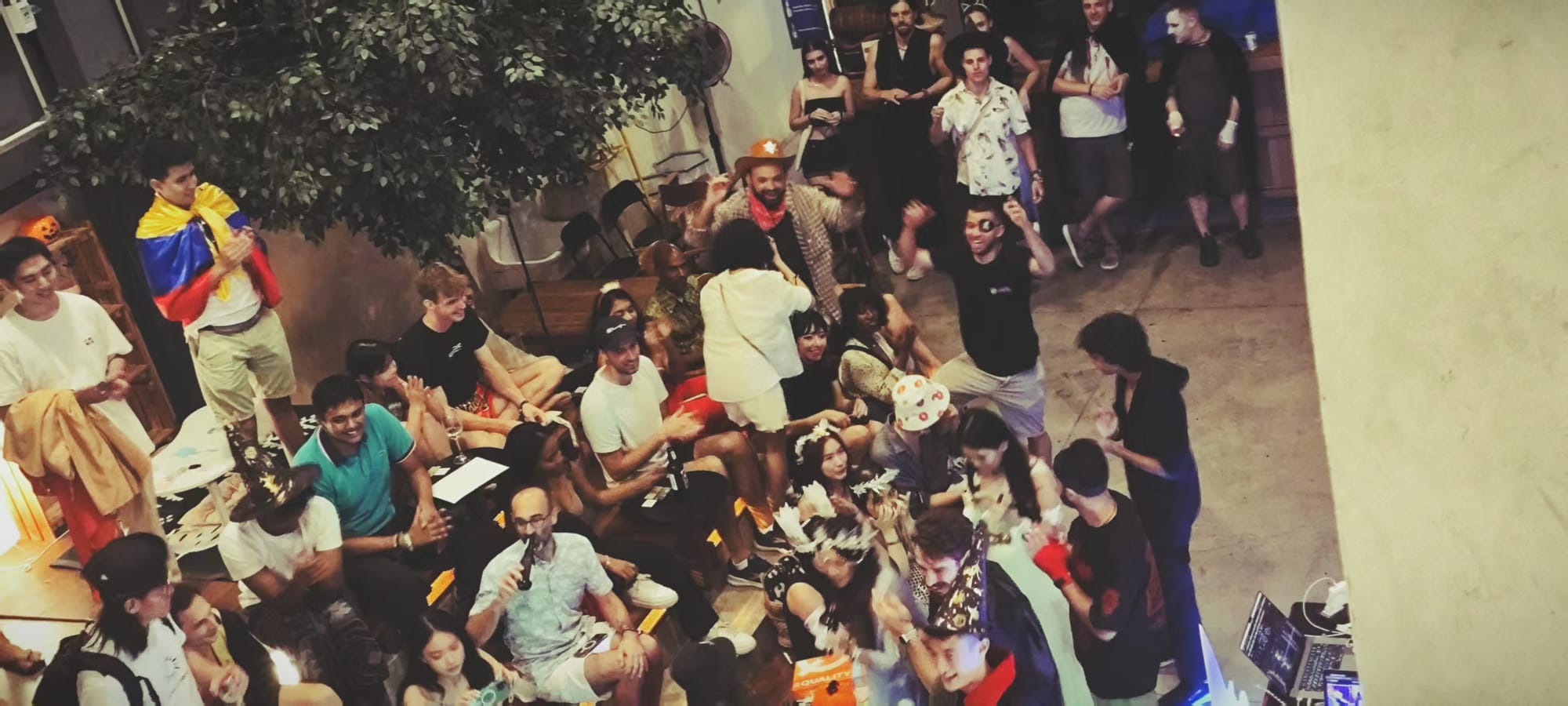
加密飞行员落脚何处
Where Do the Crypto Pilots Finally Land
Shiyu:Edge City 的尝试其实也让我特别关注到代际问题。早期硅谷和互联网那代人,最开始也是先玩几年,然后步入家庭生活,这是多数我们这代人的人生轨迹,有的人幸运一点,在旅行途中遇到了真爱。我们过去参与的无代际社区,大家大多都是在读书或刚工作阶段,对带小孩的家庭其实也不是那么便利的。我们以前的那个世界和这个世界之间总是有种隐形的隔阂,青旅不接待带孩子的家庭,就像两个平行世界。但我们自己也是从一个家庭里面走出来的。我们总幻想永远年轻、不婚不育、经济自由,但现实是多数人终会渴望稳定归宿。这种阶段性的选择,背后也是生命认知的割裂。
我们这个专栏的主题叫“加密飞行”,它其实想表达的就是说在加密世界里面,我们大家的状态总是非常忙碌,每天飞来飞去,在每个地方呆的都不是很久。你们有没有想过自己的肉身和灵魂会降落在哪里?作为在真实世界和赛博世界的边疆上不断探索的飞行员,我们最终还是会需要落地的。
The Edge City experiment made me especially focus on the issue of intergenerational continuity. The early Silicon Valley and Internet generation also spent a few years just playing around before settling into family life. This is the life trajectory of most of our generation; some were luckier and found true love during their travels. The non-generational communities we used to participate in mostly involved people still studying or just starting work, so they weren't very accommodating to families with children. There has always been an invisible divide between that world and this one, like hostels not accepting families with kids—two parallel worlds. Yet we all come from families ourselves. We fantasize about staying forever young, not marrying or having kids, and being financially free. But in reality, most people eventually yearn for stability and belonging. These stage-based choices reflect a fracture in life's understanding.
Our column is called “Crypto Flight,” which tries to express that in the crypto world, we're always busy flying around like pilots, never staying long in one place. Have you ever thought about where your body and soul will ultimately land? As pilots constantly exploring the frontier between the real and cyber worlds, we will still need to land someday.
Eggy:我觉得没有最终,现在也很难想象一个最终是什么样的。人生的不同阶段会有不同的生存方式。没生小孩之前自由地的到处飞,生小孩后有段时间就需要比较稳定的地方,等孩子再大一些,你可能希望能带他到处飞,也有可能他不愿意飞;或者你想清楚在哪里工作,或者你有更大的家庭,你的父母可能需要你,你有可能会又回到家里;或者是想带他们去哪个地方,到觉得更好的地方去旅行或是定居,都有可能。
我现在也不太希望去定最终我想待在哪里。你提到在 Crypto 世界和现实世界的切换或我们的一些愿景,我觉得都需要跳进跳出。很难说可以一直追寻某种理想,或是从此就安于现状了,或是确定从此要为生活打拼了。可以每个阶段的时候就去做每个阶段的事情。
I don't think there is a final place, and it's hard to imagine what that would be. Different stages of life come with different modes of existence. Before having kids, you can freely travel; after kids, you need a stable place for a while; when they grow older, you might want to take them traveling, or maybe they don't want to; or you might decide where to work, or if you have a bigger family, your parents might need you and you return home; or you want to take them somewhere better, for travel or settling down—anything is possible.
I'm not keen on deciding where I will ultimately be. The switching between the crypto world and reality, and the visions you mentioned, require jumping in and out. It's hard to always pursue some ideal or to just settle down or decide to struggle through life. Just do what's needed in each stage.
Jiang:在路上肯定不应该是常态,在某个地方比较固定才是常态。一个人的生活能安定下来,才是最舒服,最有效率,并且能够做更多有意义事情的状态。说到社区的代际传承,我们之前的视野一直在加密社区,但这些其实都是新近出现的东西。最早这些社区本来就是很在地的,大家互相之间彼此认识。进到社区里去看,会发现有学生也有老人,这种状态才是比较健康的。
至于会不会在某个地方着落,肯定还是会的。目前我在良渚就挺有家的感觉,中间某些时候有事情就出去,没有事情就待着。前年到处飞行是因为在一个剧烈变化的环境里,现在流行的数字游民和远程工作都是疫情的时候才开始。我觉得还是需要建立一些长期的有意义的关系,而不是一直悬浮。
Being constantly on the road shouldn't be the norm; being relatively settled in one place should be. A stable life is the most comfortable, efficient, and allows for more meaningful work. On the topic of community's intergenerational inheritance, we used to focus on crypto communities, but those are recent things. Early communities were very local, with people knowing each other. In communities, you find both students and elders, which is healthier.
Will we eventually settle somewhere? Definitely. Currently, I feel at home in Liangzhu—go out if needed, stay if not. Flying around heavily a couple of years ago was due to rapid environmental changes. Digital nomads and remote work only became popular after the pandemic. I believe we need to build long-term meaningful relationships rather than constantly floating.
Shiyu:如果明天所有的区块链和链上数据突然就被一种神秘力量抹消了。你现在有机会以你的个人力量去保留它的一部分,你认为哪个部分最值得保留下来?
If tomorrow all blockchains and on-chain data were mysteriously erased, and you had a chance to preserve a part of it with your personal power, what would you save?
Eggy:你是说如果突然有一天 Crypto 仿佛都不存在了一样,大家都不知道有这么个东西曾经存在过。我想保留的是因为它而建立起的人和人之间的关系。因为 Crypto,有很多本来不相干的人莫名其妙地就认识了。
You mean if one day crypto never existed and no one knew about it? What I'd want to preserve is the human connections it created. Because of crypto, many people who would never have met did.
Jiang:我觉得也是那些软性的东西。因为代码什么的都没有那么重要。代码也好,钱也好,都不是本质。Vitalik 提到区块链的 social layer 的时候,也讲的是区块链带来的那个关系层重要。
Hard to say, but I think it's the soft stuff that matters more. Code isn't that important. Code or money, none of those are essential. Vitalik mentioned the social layer of blockchain, which is about the relationships blockchain brings.
Shiyu:最重要的其实还是你们最早在构想时提出的那些煽动性的东西,涉及到那个背后的 “Social Layer”。我更喜欢第一版白皮书,因为那里面提出的关于人的需求,社交和社交层,无论有没有 Social Layer 这个产品,只要人和社会存在,它就一定会在那里。
What matters most are those provocative ideas you had early on. I prefer the first white paper, because it addressed human needs, social connections, and the social layer itself. Regardless of the existence of Social Layer the product, as long as people and society exist, the social layer will inevitably exist.
👇文中图片来源
@MayInter Jim Epstein
@Eggy @Shiyu
☀️ 专栏相关文章








Who we are 👇
Uncommons
区块链世界内一隅公共空间,一群公共物品建设者,在此碰撞加密人文思想。其前身为 GreenPill 中文社区。
Twitter: x.com/Un__commons
Newsletter: blog.uncommons.cc/
Join us: t.me/theuncommons
Social Layer
Social Layer 是一个模块化社交基础设施,旨在帮助全球范围内的快闪城市(Popup City)、意向性社区(Intentional Community)和分布式社群节点的运营、扩展和相互连接。
Twitter: x.com/SocialLayer_im
Matters: matters.town/@sociallayer_im
Join us: t.me/sociallayer_im
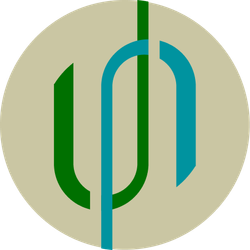

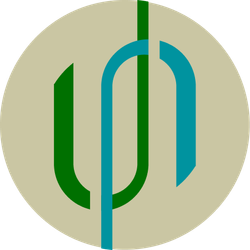
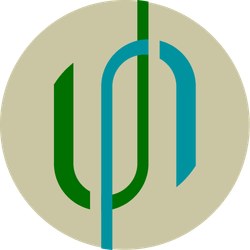
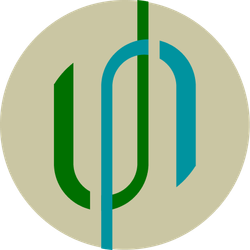
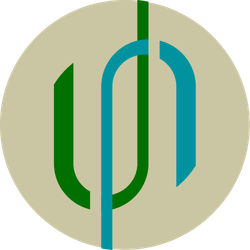
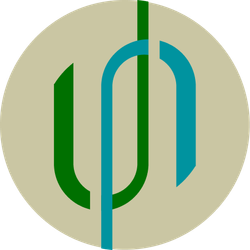
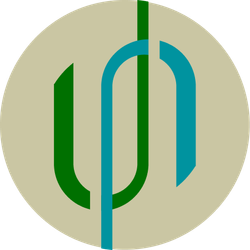
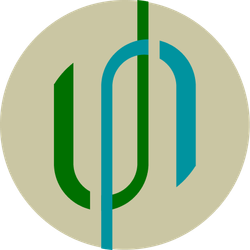
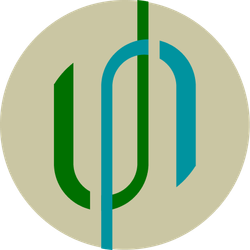
Discussion